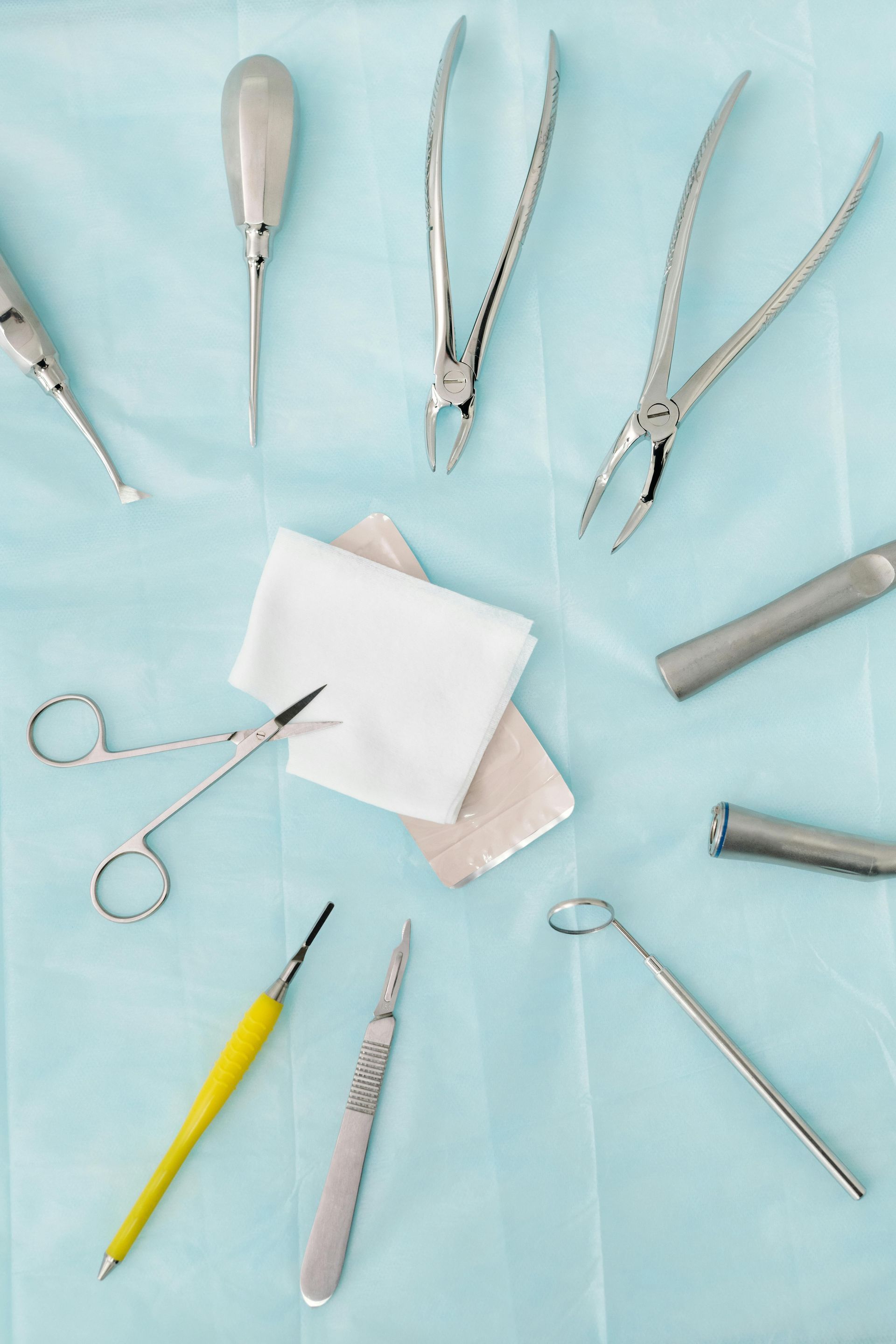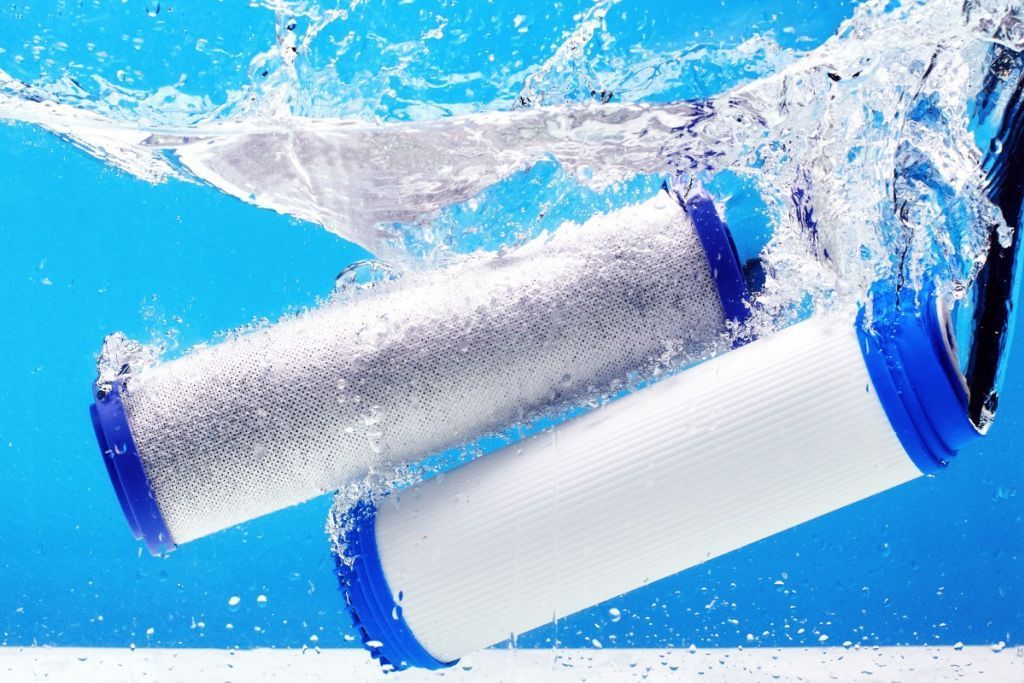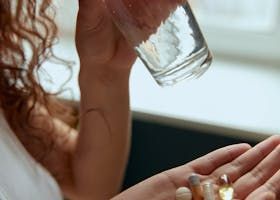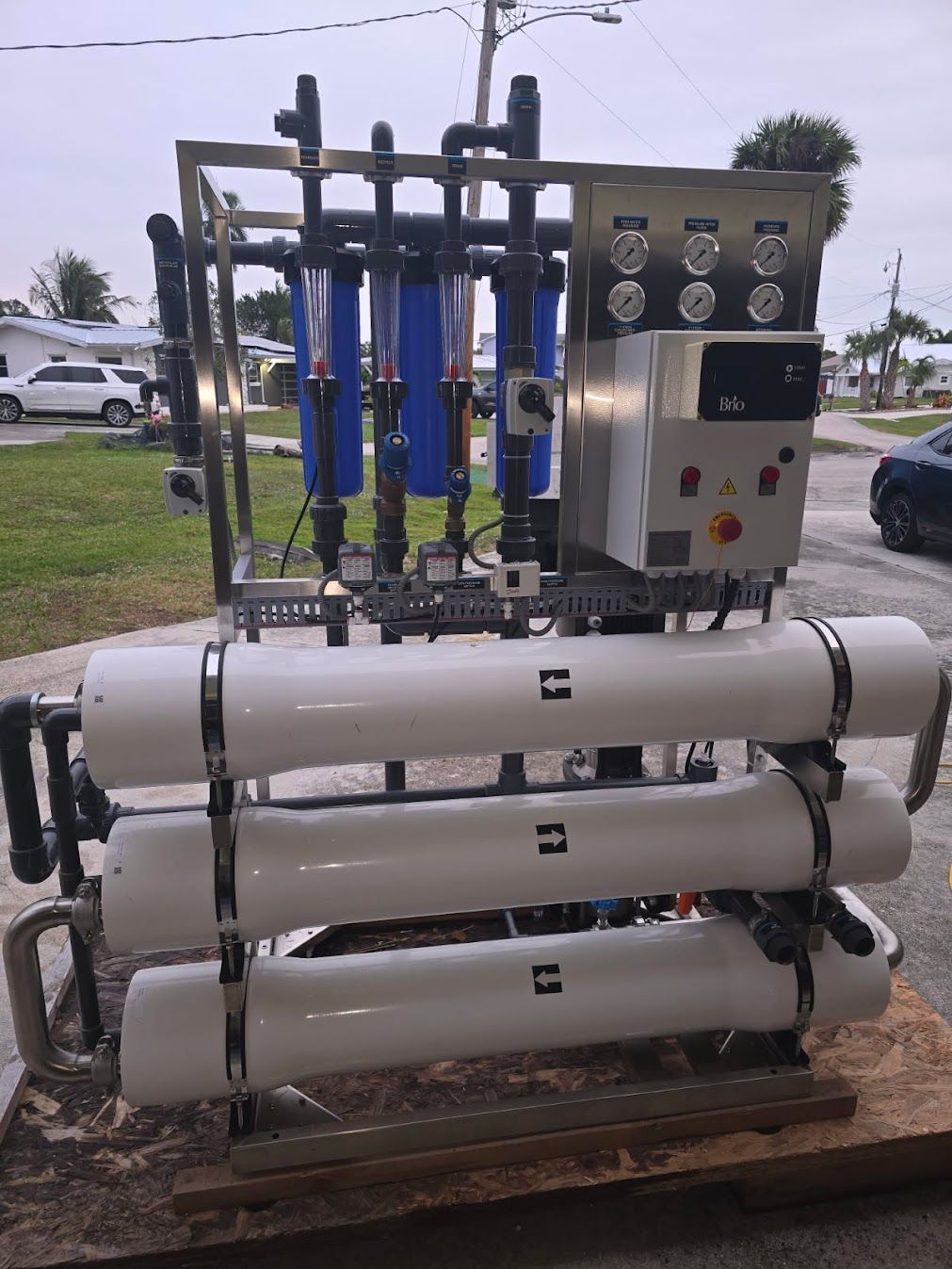Patricia Verdone • January 16, 2025
Is Hydrogen Peroxide Safe for Treating
Water That Contains Sulfur?
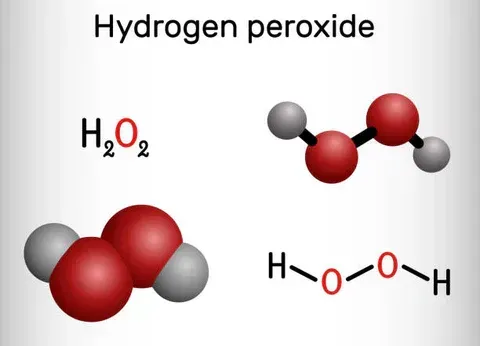
Understanding Sulfur in Water
Sulfur is common in well water. It gives water a rotten egg smell. This happens when sulfur bacteria or hydrogen sulfide gas is present. The smell is unpleasant. It can also cause plumbing issues. Water with sulfur can stain sinks and fixtures. It may also make water taste bad.
How Hydrogen Peroxide Works
Hydrogen peroxide (H₂O₂) is a strong oxidizer. It reacts quickly with contaminants. When added to water, it breaks down into water and oxygen. This makes it safe for water treatment. It removes sulfur by oxidizing hydrogen sulfide gas. This reaction turns it into a solid that can be filtered out.
Is Hydrogen Peroxide Safe?
Yes, hydrogen peroxide is safe for water treatment. It does not leave harmful residues. Unlike chlorine, it does not create dangerous byproducts. It is used in the food and medical industries. It naturally breaks down, leaving no chemical traces.
Compared to Other Sulfur Removal Methods
Is It Safer Than Chlorine?
Hydrogen peroxide is often considered safer than chlorine for water treatment. Chlorine can create harmful byproducts, such as trihalomethanes (THMs). These compounds have been linked to health risks. Hydrogen peroxide, on the other hand, breaks down into water and oxygen. It does not leave harmful residues. Unlike chlorine, it does not produce a strong chemical smell or taste. It is also less likely to irritate skin and eyes. For these reasons, many prefer hydrogen peroxide over chlorine for treating sulfur in water.
There are different ways to remove sulfur from water. Here are a few:
- Chlorine Injection – Kills bacteria but leaves byproducts.
- Aeration – Uses oxygen but may not be effective for high sulfur levels.
- Iron Filters – Removes sulfur but requires regular maintenance.
- Activated Carbon – Helps with odor but may not remove all sulfur.
Hydrogen peroxide works faster than most methods. It does not require long contact times. It is also effective in killing bacteria.
Benefits of Using Hydrogen Peroxide
- No Harmful Residues – Breaks down into water and oxygen.
- Quick Reaction Time – Works faster than chlorine.
- Removes Bacteria – Helps keep water safe.
- No Unpleasant Taste – Does not add chemicals to water.
- Environmentally Friendly – Leaves no toxic byproducts.
How to Use Hydrogen Peroxide for Sulfur Removal
Hydrogen peroxide is injected into water using a metering pump. The amount needed depends on sulfur levels. After injection, the water passes through a filter. This removes oxidized sulfur particles. A professional should test the water
before treatment. This ensures the right dosage is used.
Does Hydrogen Peroxide Affect Plumbing?
No, hydrogen peroxide is safe for pipes. It does not cause corrosion like chlorine. It also helps prevent bacteria buildup. This keeps plumbing systems clean.
Is It Safe for Drinking Water?
Yes, when used correctly, it is safe. It is commonly used in food production. The key is proper dosing. Too much can leave a slight taste. A filtration system helps remove excess.
How Often Should the System Be Maintained?
Regular maintenance is important. Filters should be cleaned or replaced as needed. The injection system should be checked monthly. Water tests should be done to ensure proper treatment.
Hydrogen peroxide is a safe and effective way to treat sulfur in water. It works quickly and leaves no harmful residue. It is better than chlorine
in many cases. It also helps keep plumbing free from bacteria. For best results, work with a professional. They can ensure the right system is in place. Safe water is important for health and the home. Hydrogen peroxide makes it possible.
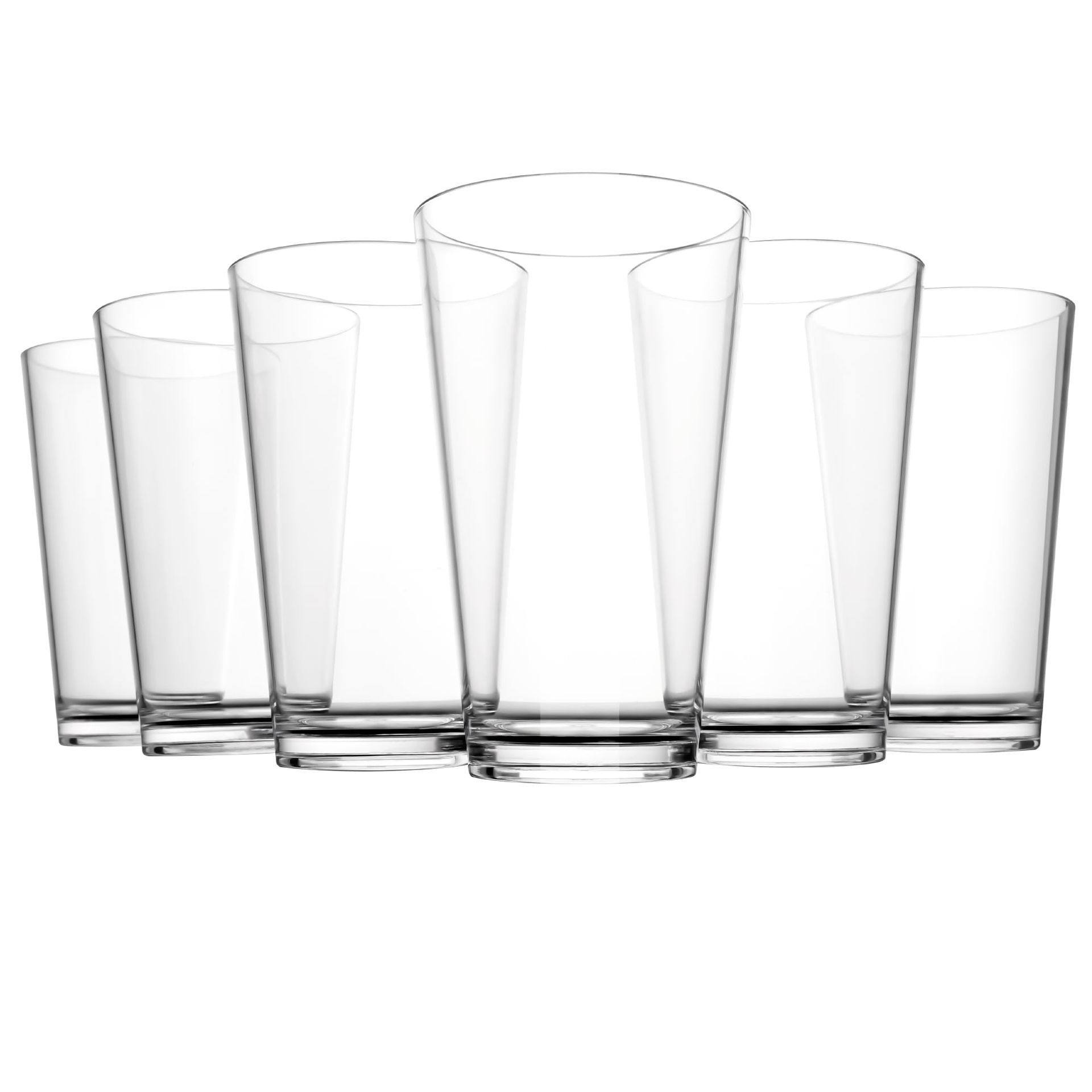
The Most Common Water Mistake One of the most dangerous assumptions homeowners make is also the most common. “My water looks clear, so it must be safe.” Unfortunately, appearance has very little to do with water safety. Some of the most harmful contaminants in drinking water are completely invisible. They don’t change color. They don’t change taste. They don’t change smell. By the time there are visible signs, the problem is often advanced. Let’s break down the most common water myths—and why believing them can put your home, health, and appliances at risk. Myth #1: Clear Water Means Clean Water This myth causes more complacency than any other. Water clarity only tells you one thing: there are no large particles suspended in the water. It tells you nothing about: • Bacteria • Viruses • PFAS • Heavy metals • Nitrates • Volatile organic compounds Many contaminants are microscopic and remain perfectly clear. In fact, water that looks crystal clear can still fail safety standards. Myth #2: If It Doesn’t Smell Bad, It’s Fine Odor is not a reliable safety indicator. Some contaminants produce strong smells. Many do not. Examples of odorless risks include: • Lead • Arsenic • PFAS • Nitrates • Bacteria at low concentrations Relying on smell gives a false sense of security. By the time water smells bad, the issue has often existed for a long time. Myth #3: City Water Is Always Safe Municipal (City) water is treated—but that doesn't mean it is contaminant-free. City water can still contain: • Disinfection byproducts • PFAS • Lead from aging pipes • Industrial runoff • Chloramines Water quality can also change due to: • Construction • Main breaks • Seasonal demand • Aging infrastructure Municipal treatment protects public supply—but it does not guarantee ideal water at your tap. Myth #4: Boiling Water Makes It Safe Boiling water does kill many bacteria and viruses. It does not remove: • PFAS • Heavy metals • Nitrates • Chlorine byproducts In some cases, boiling actually concentrates contaminants as water evaporates. Boiling is a temporary emergency step—not a long-term water solution. Myth #5: Bottled Water Is Safer Than Tap Water Many homeowners switch to bottled water, believing it is cleaner. In reality: • Bottled water is often filtered tap water • Quality standards vary widely • Storage conditions matter • Plastic leaching is a concern Bottled water also creates: • High recurring costs • Plastic waste • False confidence A properly designed home filtration system often produces water that is more consistent and more economical. Myth #6: Filters Remove Everything Not all filters are created equal. Different contaminants require different treatment methods . For example: • Carbon removes chlorine—not hardness • Softeners remove minerals—not bacteria • RO systems remove many contaminants—not all Using the wrong system is almost as risky as using no system at all. Water treatment must be matched to the problem. Myth #7: If No One Is Sick, the Water Is Fine Many water contaminants cause long-term exposure risks, not immediate symptoms. Examples include: • PFAS • Lead • Arsenic • Nitrates Health effects may take years to appear. Waiting for symptoms is not a safety strategy. Myth #8: Water Testing Is Only Needed Once Water quality changes over time. Factors that cause change include: • Pipe corrosion • Municipal treatment adjustments • Seasonal rainfall • Equipment aging • Groundwater shifts A test from years ago does not reflect today’s conditions. Regular testing provides early warning—before problems escalate. Myth #9: Soft Water Means Safe Water Soft water improves appliance life and plumbing protection. But water softeners do not remove: • Bacteria • PFAS • Chemicals • Heavy metals Soft water can still be unsafe water. Treatment systems must work together—not in isolation. Myth #10: Water Problems Are Obvious The most dangerous water problems are invisible. They don’t leave stains. They don’t clog pipes. They don’t smell bad. They quietly affect: • Health • Appliances • Plumbing • Energy efficiency By the time problems become obvious, damage is already occurring. Why These Myths Persist Water issues are difficult to see. Testing is often misunderstood. Marketing oversimplifies solutions. As a result, homeowners rely on assumptions instead of data. Clear water feels reassuring—but safety requires verification. The Smarter Approach: Test, Treat, Monitor Safe water is not about guessing. It is about: • Testing to identify contaminants • Treating with the correct technology • Monitoring to ensure performance This approach protects: • Your health • Your plumbing • Your appliances • Your long-term costs Final Thoughts: Clear Water Is Not a Guarantee The myth that “clear equals safe” is outdated—and dangerous. Modern water challenges require modern solutions. If you truly want safe water, don’t rely on appearance. Rely on facts. Because the most dangerous problems are the ones you cannot see.
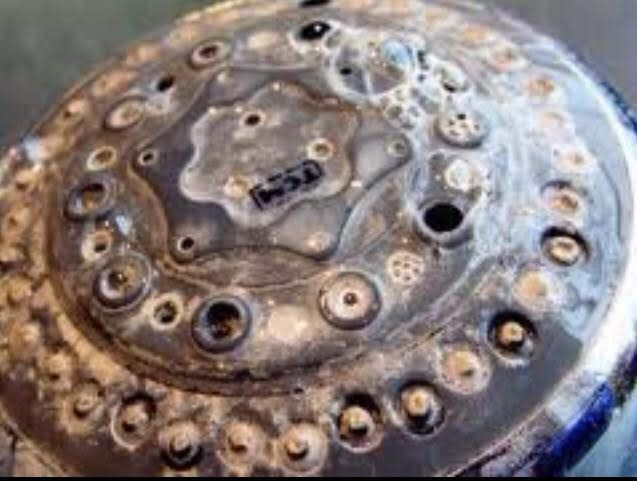
The Damage You Don’t See Most water damage doesn’t happen overnight. It builds slowly. Silently. Behind walls and inside appliances. Hard water is one of the most common—and expensive—causes of hidden damage in homes. While it may seem harmless, hard water creates long-term problems that reduce efficiency, shorten equipment lifespan, and increase repair costs. Understanding the difference between hard water and soft water is critical if you want to protect your plumbing and appliances. What Is Hard Water? Hard water contains elevated levels of dissolved minerals—primarily calcium and magnesium. These minerals are not harmful to drink. But they are extremely destructive to plumbing systems and appliances. When hard water is heated or evaporates, those minerals do not disappear. They harden into scale. Scale is the enemy. What Is Soft Water? Soft water has had hardness minerals removed or neutralized through a water softening process. Instead of mineral buildup, soft water flows cleanly through pipes and equipment. The difference isn’t cosmetic. It’s mechanical. Soft water reduces friction, buildup, and internal stress on plumbing systems. How Hard Water Damages Plumbing Over Time Hard water damage inside pipes is gradual—but relentless. As water flows, minerals stick to pipe walls. Over time, scale layers thicken. This leads to: • Reduced pipe diameter • Lower water pressure • Increased turbulence • Higher risk of leaks • Premature pipe failure Metal pipes corrode faster when scale traps moisture. Plastic pipes clog as mineral deposits accumulate. Most homeowners never see this damage until major repairs are needed. The Impact on Water Heaters Water heaters suffer some of the worst hard water damage. When hard water is heated: • Minerals fall out of solution • Scale settles at the bottom of the tank • Heating elements become insulated This causes: • Longer heating times • Higher energy consumption • Overheating of elements • Early tank failure Tankless water heaters are even more vulnerable. Scale buildup inside heat exchangers quickly reduces efficiency and can cause complete failure. How Hard Water Shortens Appliance Lifespan Appliances are designed to work with clean water flow. Hard water interferes with that design. Common appliance impacts include: Dishwashers • Spray arms clog • Heating elements scale • Detergent performance drops Washing Machines • Mineral buildup in hoses • Reduced cleaning efficiency • Higher soap usage • Mechanical strain Ice Makers • Clogged valves • Poor ice quality • Frequent breakdowns Manufacturers estimate hard water can reduce appliance lifespan by 30–50%. That cost adds up quickly. Energy Costs: The Hidden Expense Scale acts as insulation. When heating elements are coated in mineral deposits, they must work harder to do the same job. This results in: • Higher electric bills • Increased gas consumption • Longer run times • Reduced system efficiency Many homeowners blame rising energy costs on utility rates, when the real issue is scale buildup. Soft Water Protects Your Investment Soft water eliminates the root cause of scale. Over time, soft water systems provide: • Longer appliance lifespan • Improved plumbing performance • Lower energy costs • Reduced maintenance and repairs Soft water also allows detergents and soaps to work properly—using less product for better results. Maintenance Differences: Hard vs Soft Water Homes Homes with hard water typically experience: • Frequent plumbing service calls • Early appliance replacement • Descaling treatments • Higher maintenance costs Homes with soft water experience: • Predictable maintenance • Fewer emergency repairs • Longer equipment warranties • Lower lifetime ownership costs The difference becomes more dramatic over 10–20 years. Is Soft Water Only About Convenience? No. While benefits like softer laundry and spotless dishes are noticeable, the real value of soft water is asset protection. Your plumbing system and appliances represent tens of thousands of dollars in value. Hard water silently eats away at that investment every day. Signs Hard Water Is Damaging Your Home Many homeowners already have warning signs, including: • White scale on faucets and fixtures • Frequent appliance repairs • Low water pressure • Noisy water heaters • Short appliance lifespan • Excessive soap usage If you see these signs, damage is already occurring. Call Safeway Water Technologies to get soft water in your home now! Prevention Is Always Cheaper Hard water damage compounds over time. Once scale builds up, removal is difficult and expensive. Soft water stops the damage before it starts. Choosing to treat hard water is not about comfort. It’s about protecting plumbing systems. It’s about extending appliance life. It’s about lowering long-term costs. In the long run, soft water is not an expense. It is insurance for your home.

Most pet owners focus on high-quality food, regular vet visits, and plenty of love and exercise. But there is one daily essential that is often overlooked— water quality . Your pets drink water every single day. In many cases, they drink more water per pound of body weight than we do. If that water contains chlorine, heavy metals, bacteria, or other contaminants, it can quietly impact their health and comfort over time. Filtered water is not just a luxury for people. It can play a meaningful role in keeping pets healthier, happier, and more energetic throughout their lives. Pets Are More Sensitive to Water Quality Than You Think Dogs and cats are smaller than humans, which means contaminants in water affect them more quickly. A small amount of chlorine, lead, or sediment that may seem insignificant to a person can be much more concentrated for a pet. Municipal and well water can contain: Chlorine and chloramines Sediment and rust from aging pipes Heavy metals such as lead or copper Bacteria or organic matter Sulfur, iron, or other naturally occurring minerals While these contaminants may meet regulatory standards (check your tap water at EWG ), they are not designed with pet health in mind. Over time, exposure can contribute to subtle but persistent issues. Better-Tasting Water Means Better Hydration Pets are instinctively sensitive to taste and smell ( especially dogs, cats & horses). If water smells like chlorine or tastes metallic, many pets will simply drink less. This is especially harmful in cats, who are already prone to low water intake. Filtered water: Removes unpleasant odors and flavors Encourages pets to drink more frequently Supports proper hydration Proper hydration helps regulate body temperature, supports kidney function, and improves digestion. Pets that drink enough water are often more energetic and comfortable, especially as they age. Improved Digestion and Fewer Stomach Issues Many unexplained digestive problems in pets can be aggravated by poor water quality. Chlorine, bacteria, and sediment can irritate the gastrointestinal tract, particularly in pets with sensitive stomachs (like Great Danes and others). Filtered water can help: Reduce vomiting and diarrhea linked to irritation Support nutrient absorption Promote healthier gut function For pets already dealing with food sensitivities or allergies, removing one more potential irritant—unfiltered water—can make a noticeable difference. Healthier Skin and Shinier Coats Just like people, pets absorb water through their skin during bathing. Chlorine and harsh minerals can dry out the skin, leading to itching, dull coats, and excessive shedding. When pets drink and bathe with cleaner water: Skin stays more hydrated Natural oils are preserved Coats appear shinier and softer Less itching and scratching occurs This is especially beneficial for dogs with allergies, hot spots, or chronic skin conditions. Kidney and Urinary Health Support Cats and dogs are both susceptible to kidney and urinary tract issues, especially as they age. Clean water plays a critical role in flushing toxins from the body. Filtered water helps by: Reducing mineral buildup Lowering exposure to heavy metals Supporting healthy kidney function For cats in particular, proper hydration is one of the most important factors in preventing urinary blockages and kidney disease. Reduced Exposure to Harmful Contaminants Some contaminants in water have long-term health implications. Heavy metals and certain chemicals can accumulate in the body over time, placing stress on organs and the immune system in us and them. Filtered water can reduce exposure to: Lead and copper Volatile organic compounds Pesticides and industrial runoff Bacteria and cysts Less exposure means less stress on your pet’s body and a stronger overall immune response. Happier Pets Show It in Their Behavior When pets feel better, it shows. Pet owners who switch to filtered water often notice subtle but positive changes, such as: Increased energy Improved appetite Better sleep Fewer digestive upsets More playful behavior These changes are not dramatic overnight transformations, but steady improvements that contribute to a better quality of life. Filtered Water Benefits Multi-Pet Households In homes with multiple pets, water bowls are shared throughout the day. Cleaner water stays fresher longer and is less likely to develop odors or buildup. Filtered water: Keeps bowls cleaner Reduces slime and residue Encourages consistent drinking habits across pets This is particularly helpful for households with both dogs and cats, or pets of different ages. What About Pet Water Fountains? Pet water fountains can be helpful, especially for cats and horses, but they are only as good as the water used to fill them. If the source water is contaminated, the fountain simply recirculates the same poor-quality water. Using filtered water in pet fountains: Maximizes the benefit of the fountain Prevents mineral scaling Keeps pumps and filters cleaner longer A Simple Change With Long-Term Benefits Switching your pets to filtered water is one of the easiest ways to support their health. There are no medications, no special training, and no behavior changes required. Just better water in the bowl. Safeway Water Technologies~Fix Any Water supports healthy pets. We encourage you to make them as happy & healthy as you can. This includes their water. It's a small daily improvement that snowballs over time—supporting digestion, hydration, skin health, kidney function, and overall happiness. Clean Water Is Part of Responsible Pet Care Pet owners go to great lengths to choose the right food, toys, and healthcare. Water should be treated with the same level of care. If you would not drink unfiltered water every day, your pets should not have to either. Clean, filtered water helps pets feel better, act happier, and live more comfortably. Sometimes the simplest changes make the biggest difference—starting with what’s in the bowl.

The holiday season brings joy, laughter, and one of our favorite things—hosting. Whether you're welcoming overnight guests, hosting a festive dinner, or just filling mugs with hot cocoa, your home becomes the heart of the celebration. And while you’re setting the table, fluffing pillows, and lighting candles… don’t forget one key ingredient to a cozy, comfortable home: 👉 Clean, high-quality water. Here’s why water quality matters even more when you're hosting—and how to make sure your guests feel the difference. 1. First Impressions Start at the Sink From handwashing to brushing teeth, water is often the first thing your guests experience. If it smells like chlorine or feels hard on their skin, they'll notice—even if they don’t say it out loud. High-quality water means: No strong smells or odd tastes Softer skin and hair after showering Sparkling dishes, not streaky ones It’s a small detail that leaves a big impression. 2. Guests Drink More Water Than You Think Coffee. Tea. Ice cubes. Refills at dinner. Your water is everywhere, and if it doesn’t taste great, people tend to reach for bottled drinks instead—which adds cost and waste. A filtered whole home system or under-the-sink RO makes your water taste clean, fresh, and noticeably better. It’s one of those upgrades guests always comment on: “Your water tastes so good!” 💧 3. The More People, the More Strain on Your System Hosting naturally means more water usage—showers, flushing, laundry, dishes, and cooking. If your system is outdated, you might notice: Slower pressure Spots on glassware Staining around faucets or sinks By investing in a reliable, efficient water system, you keep everything running smoothly—even with a house full of guests. 4. Little Luxuries Leave a Lasting Impact Clean water is one of those invisible luxuries that make your home feel like a retreat. It’s thoughtful. It’s refreshing. And it’s something your guests will remember. So while you’re lighting candles and folding towels, take a moment to ask: Is your water guest-ready? 🎁 December Special Offer If you’ve been considering a water upgrade, now’s the perfect time: Buy a whole home system this month and get a FREE Oxydizer OR under-the-sink RO system. That means better water for your guests and a bonus for you. Let’s make your holiday hosting unforgettable—starting from the tap. 📞 Call us to schedule a free consult . Happy Holidays!
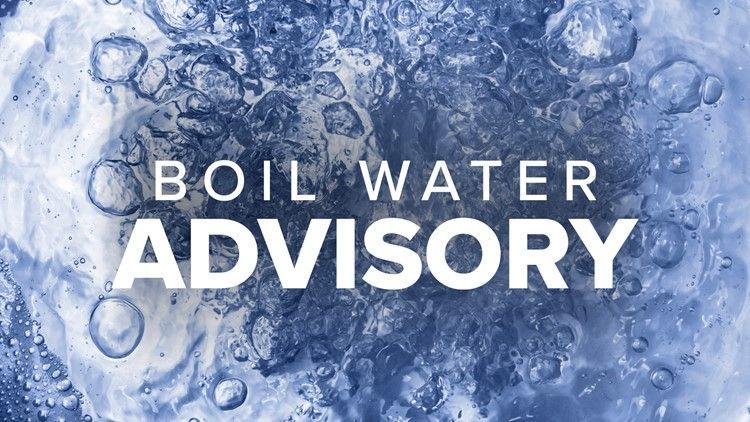
Boil-water notices occur more often than people realize. City systems fail. Water mains break. Pressure drops. And suddenly, your tap may not be safe. Many people think boiling water fixes everything. But does it? Yes and no. Here is what you need to know to protect your home and family. 🔥 What Boiling Water Actually Fixes Boiling water kills bacteria. It kills viruses. It kills parasites. That includes E. coli and coliform bacteria — the usual reason for boil water alerts. Heat destroys these organisms. So boiling is effective during emergencies. But boiling only handles biological contamination. Nothing else. ⚠️ What Boiling Water Does Not Fix This is where most people get misled. Boiling does not remove: PFAS ("forever chemicals") Chlorine or chloramines Heavy metals Pharmaceuticals Rust and sediment Pesticide runoff Nitrates Plastic byproducts These stay in the water. And boiling makes it worse because water evaporates, making contaminants more concentrated. So boiling is not purification. It is only a temporary safety measure. 💧 Why Boil Water Notices Happen in Florida Florida systems deal with unique challenges: Aging infrastructure Tourism surges Construction damage Storms and hurricanes Sudden pressure loss Groundwater intrusion Any of these can pull bacteria into the system. That’s when the advisory goes out. Your home must take it seriously until the city completes testing. ⏱️ How Long Should You Boil Water? CDC guidelines are simple: Bring water to a rolling boil for at least 1 full minute. At higher elevations: 3 minutes. Use boiled water for: Drinking Cooking Baby formula Washing produce Brushing teeth Do not rely on unboiled water until the advisory ends officially. 💡 What Actually Makes Water Safe Year-Round Boiling is short-term. Filtration is long-term. Here are the systems that truly protect your home: 1. Whole-Home Carbon Filtration Removes chlorine, chemicals, VOCs, and odors. 2. Water Softening Systems Removes hardness. Saves plumbing. Protects water heaters and appliances. 3. Reverse Osmosis (RO) This is the gold standard for drinking water. RO removes PFAS, heavy metals, pharmaceuticals, nitrates, salts, and more. 4. UV Disinfection Kills bacteria and viruses instantly. A great addition for well water or high-risk homes. 5. Specialty No-Chemical Filtration (iPurify Exclusive) Perfect for families who want clean water without additives. These systems give you clean water every day — not just during emergencies. 🏡 Final Thoughts Boiling helps. But it only helps with bacteria. It fails against chemicals. It fails against PFAS. It fails against metals. And it can even concentrate contaminants. If you want true, consistent, year-round protection, filtration is the solution. That’s where we come in. iPurify Water Filtration / Safeway Water Technologies delivers clean, safe water for homes and businesses across Florida. Because not all water is treated equally. 📞 866-928-3795 🌐 callpurrfectlypure.com Serving the Treasure Coast and all of Florida.
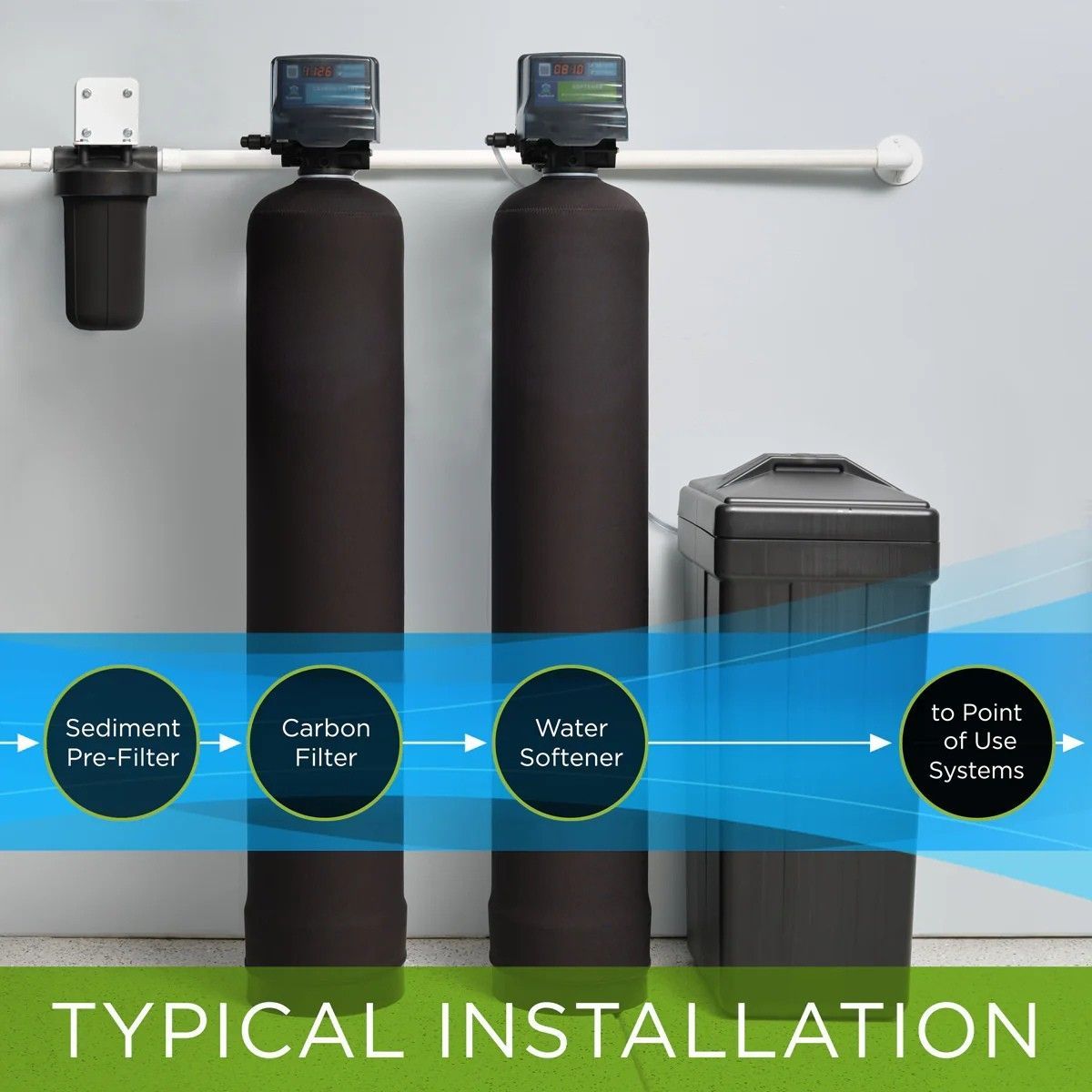
Most homeowners think about filtered water at one place. The kitchen sink. The fridge. Maybe the little pitcher on the counter. But here’s the truth. Your water touches far more than your drinking glass. It runs through every faucet, every shower, every appliance, and every pipe in your home. And if the water entering your home isn’t clean, nothing in your home is truly protected. That’s why the biggest trend in 2025 isn’t a new gadget. It’s the move toward whole-home water filtration . Clean water. Every faucet. Every day. Let’s explore why more families are upgrading from “just drinking water” filters to systems that keep the whole house clean — from tap to tub. Your Water Doesn’t Stop at the Kitchen Sink Think about your day. You shower in your water. You wash your clothes in it. You breathe the steam from it. Your kids bathe in it. Your pets drink it from their bowls. Your water heater, dishwasher, washing machine, and plumbing run on it nonstop. If the water contains chlorine, chloramines, sediment, PFAS, hardness minerals, or organic contaminants… They show up everywhere. In dry skin. In faded laundry. In stained fixtures. In clogged appliances. In premature plumbing failures. A whole-home system treats all of it. So your water is consistent, gentle, safe, and clean — no matter where you use it. The Hidden Impact of Unfiltered Shower Water Most homeowners never think about what comes out of the showerhead. But your skin does. Your hair does. Your lungs do. Chlorine and chloramine don’t just smell strong. They strip moisture from your skin and hair. They irritate eyes. They create dry patches and brittle ends. And when heated, these chemicals become a vapor you inhale. Whole-home filtration reduces these harsh chemicals. So showers feel softer. Skin feels smoother. Hair stays healthier. And your body isn’t taking in chemicals it doesn’t need. Families with children, sensitive skin, pets, or allergies notice the difference quickly. Hard Water Is Quiet… Until It Isn’t Hard water doesn’t always look dirty. But it builds up everywhere. It coats water heaters. It clogs appliances. It creates cloudy dishes and spotted shower doors. It eats away at plumbing. It shortens the life of expensive equipment like tankless heaters. A smart whole-home system can also include softening technology. This protects your home inside and out. And it saves money by preventing repairs, replacements, and wasted energy. Homeowners love this because it means cleaner laundry, softer towels, brighter clothing, and less scrubbing in the bathrooms. Emerging Contaminants Are Changing the Rules PFAS. Microplastics . Industrial by-products. Agricultural runoff. Even chemical disinfectant by-products from city treatment plants . These contaminants are in national headlines. Homeowners want real protection, not guesswork. Whole-home systems can be designed to target these specific threats. Media-based filtration. Carbon blends. Specialty resins. Advanced purification add-ons for drinking water. It’s the most complete way to protect your family from what the eye can’t see. The Convenience Factor: Clean Water Without the Work Pitchers. Fridge filters. Under-sink cartridges.(better as an add-on than alone) They all require constant replacement. They trap only some contaminants. And they don’t protect the rest of your home. A whole-home system: Treats every drop of water entering the house Requires less frequent maintenance Works automatically Reduces plastic waste Protects plumbing and appliances Supports long-term home value It’s convenience and protection wrapped into one clean, simple upgrade. From Tap to Tub: Your Home Deserves Complete Protection Whole-home smart filtration systems are more than a trend. They’re becoming the new standard for families who want healthy living, lower maintenance costs, and real peace of mind. When your water is treated at the source: Your showers are cleaner. Your dishes sparkle. Your clothing lasts longer. Your appliances run better. Your air quality improves. Your family feels the difference every day. It’s the upgrade that touches everything — from tap to tub.

Water makes coffee happen. It carries flavor out of the grounds. It buffers acids. It touches every drink on your menu. Yet many cafés treat water like an afterthought. That choice is costly. In taste. In consistency. And in repairs. Here’s how water quality quietly decides whether your coffee shop wins the day—or fights it. Coffee Is Mostly Water A pour-over is about 98% water. Espresso is lower, but still water-dominant. If the water is off, the cup is off. Too few minerals and extraction stalls. You get sour, thin, underdeveloped flavors. Too many minerals and extraction runs hot. You get harsh bitterness and a dry finish. The goal is balance. Enough minerals to extract sweetness. Not so much that acids spike or astringency creeps in. Taste Rides on Three Numbers Baristas dial in with grind, dose, and time. Water pros dial in with hardness, alkalinity, and TDS. Hardness (mostly calcium and magnesium) shapes extraction and crema. Alkalinity buffers acids so brightness stays pleasant, not sharp. TDS is total dissolved solids. It gives you a quick sense of mineral load. A practical starting point for many espresso bars: hardness around 50–100 ppm as CaCO₃, alkalinity 40–70 ppm, and TDS 75–200 mg/L, with pH near neutral. Then you taste and refine. Chlorine Is the Silent Saboteur Municipal water often contains chlorine or chloramine. They control microbes, which is good for safety. But they add off-flavors, and they attack rubber and gaskets inside espresso machines. Activated carbon removes them. That is why a serious café always filters for chlorine/chloramine first. Scale Is the Budget Killer Hard water leaves scale. Scale coats boilers and heat exchangers. It narrows fittings and jam valves. It forces higher temperatures and longer recovery times. Energy costs rise. Machines drift out of spec. Eventually, you lose pressure or temperature stability, and your shots go sideways. Descaling is expensive. Replacing parts is worse. Preventing scale is cheaper than repairing it. Every time. “Softener, RO, or Phosphate—Which One?” There isn’t one right answer for every café. It depends on your source water and your equipment warranty. Softening swaps hardness ions for sodium or potassium. It’s great for scale control. It doesn’t remove chlorine, so you still need carbon. Reverse Osmosis (RO) with blending strips water down, then adds back a controlled amount of minerals. This is powerful when source water is very hard, or when you need repeatable recipe water across locations. Phosphate treatment can inhibit scale in some cases, especially for ice. It’s not a silver bullet for espresso. A good program often blends methods: carbon + softening for bars with moderate hardness, or carbon + RO with blending for very hard or variable water. Our system is specifically made for coffee bars. Why “Recipe Water” Improves Consistency You know the story. Monday’s dial-in tastes good. Tuesday turns weird. Same beans. Same baristas. Different water. If hardness, alkalinity, or TDS swing by season or neighborhood, your extractions swing too. “Recipe water” locks those numbers in. You set mineral targets, install the right treatment, and hold the line with monitoring. Now your grinder moves are small. Your shots repeat. Staff wastes fewer dial-in shots. That’s real savings on coffee and time. It’s Not Just Espresso. Every water touchpoint improves. Ice: With clean, stable water, ice is clearer and harder. Drinks are colder with less dilution. Tea: Tannins present cleanly. Bitterness drops. Aroma improves. Cold Brew: Less haze. Better shelf life. Smoother finish. Steam Wands: Scale-free boilers keep pressure steady. Milk texture gets silky. When customers order lemonade or matcha, they should taste your recipe—not your city’s chlorine. Monitoring Keeps You Honest Filters don’t last forever. Neither do membranes or resin. Smart cafés install pressure gauges and inline TDS monitors. Pressure drop tells you when a carbon block is clogging. TDS shift tells you when RO performance or blending has drifted. Pair that with a quarterly water test (hardness, alkalinity, pH, chlorine/chloramine). Now maintenance is proactive, not reactive. Dollars and Sense Let’s talk cost. A single emergency visit for a scaled espresso machine can run $300–$900, not counting lost sales while you limp along. A planned filtration program with scheduled cartridges often costs $60–$120 per month per bar, depending on flow and components. Skip two emergencies a year and the program pays for itself—before you count better coffee, fewer wasted shots, and higher reviews. Energy use drops, too. Scale is a terrible insulator. A thin layer forces your boiler to work harder. Clean surfaces transfer heat efficiently. Your machine recovers faster and lasts longer. Staff Love It Baristas want to serve great coffee. Consistent water makes success repeatable. Training sticks. Recipes hold. New hires ramp faster. You get fewer “mystery” off-days. Morale goes up when the tools cooperate. How to Start (Simple Checklist) Test your water. Measure hardness, alkalinity, pH, chlorine/chloramine, and TDS. Match treatment to results. Carbon for chlorine, then softening or RO-blend for scale and recipe control. Set targets. Choose hardness, alkalinity, and TDS ranges that fit your coffee and equipment. Install monitoring. Inline TDS and pressure gauges. Schedule service. Change filters by gallons and pressure, not guesswork. Test quarterly. Will RO Make Coffee Flat? It can—if you stop at pure RO. That’s why cafés blend mineralized water back in or use a post-cartridge to rebuild minerals. The goal is not “empty” water. The goal is recipe water. Balanced. Repeatable. Delicious. What About Warranty? Most espresso manufacturers publish water specs for warranty coverage. We configure your system to meet those specs. That keeps taste on target and your investment protected. The Payoff Better water makes coffee sweeter. It stabilizes shots. It clears your ice and protects your machines. It lowers emergency repairs and energy use. It reduces training headaches and waste. Most of all, it makes customers happy. They notice when the coffee is clean, bright, and consistent. They come back for that cup. Next step: Book a free café water test. We’ll check your numbers, design the right treatment, and install with minimal downtime. Then we’ll keep you on track with scheduled service and monitoring—so your bar stays dialed, every day. Call: 866-928-3795 Or: Book Your Free Water Test

Horses need great water. Not just clear water. Clean, safe, balanced water. Bad water hurts performance. It stains stalls and buckets. It smells. It corrodes plumbing. It can harbor bacteria. We fix that—end to end. Below is how we clean the water for stables and barns , step by step. Step 1: On-Site Testing and Inspection Every barn is unique. Wells vary. Plumbing varies. Flow demands vary. We start with a site visit. We test for iron, manganese, hardness, pH, sulfur odor, tannins, total dissolved solids, and bacteria indicators. We look at pump size, pressure tank health, pipe size, and hose bib locations. We measure flow. We review routine water use—stalls, automatic waterers, wash racks, tack room sinks, pasture hydrants. The result is a clear water profile and a right-sized treatment plan. Step 2: Sediment First Sediment clogs everything. So we capture it at the door. We install a spin-down or large-format cartridge to catch sand and grit. It protects the pump. It protects the rest of the system. It keeps the trough valves from sticking. It makes every stage after it work better and last longer. Step 3: Iron and Odor Removal Rusty buckets? Orange troughs? Rotten-egg smell? That is iron, manganese, and hydrogen sulfide. We use an air-injection or catalyst media filter to oxidize and trap metals. Backwashing cleans the media automatically. No slimy resin. No more orange stains. No more black streaks. No sulfur smell hanging in the barn aisle. For tougher odor, we add a contact tank. That gives the water more time to react and clean up. Step 4: Carbon Polishing Horses drink with their noses first. Smell matters. Taste matters. A high-capacity carbon filter removes leftover odors and improves taste. It also strips many nuisance organics and balances color from tannins. Buckets rinse clean. Waterers stay fresh longer. Horses drink more willingly. Step 5: Hardness Control Hard water wrecks gear. It leaves scale on heaters, wash equipment, and autofill valves. We size a softener to your peak flow. No pressure loss at wash time. Scale is controlled. Hoses and nozzles last longer. Heaters run efficiently. Soap works like it should. If you prefer no softener on pasture lines, we can split the plumbing. Softened wash racks. Conditioned stall lines. Raw or iron-treated only for pasture hydrants—your choice. Step 6: Final Disinfection Barns are busy. Biofilm builds in lines and troughs. Disinfection protects your herd. Two common options: UV light. No chemicals. Instant disinfection as water passes the lamp. Great for main lines and drinking points. Low-dose oxidant. Metered peroxide or chlorine after filtration. Maintains a protective residual in long runs and pasture lines. Helps keep troughs cleaner between scrubs. We select the method for your layout, flow, and goals. Either way, we aim for consistent, reliable protection across the property. Step 7: Smart Plumbing Design Performance is in the details. We build a simple, serviceable layout: Bypass on every major component. Pressure gauges before and after key stages. Unions and isolation valves for quick maintenance. Heat-safe placement near drains and power. Freeze-aware routing for barns in cooler zones. Optional loops for future add-ons. We match pipe size to your flow. We avoid bottlenecks. We keep the wash rack pressure strong even with multiple hoses open. Step 8: Point-of-Use RO (Optional) For tack room taps or staff drinking water, some barns want reverse osmosis. It removes salts and many dissolved contaminants for a crisp taste. We add a small RO faucet and tank where you want it. It is optional, but many teams love it for mixing supplements or filling rider bottles. Step 9: Startup, Sanitation, and Training A clean start matters. We sanitize the lines. We shock, flush, and stabilize the system. We log pre- and post-install numbers for iron, hardness, and odor. We label valves and filters. We train your team on basic checks and how to read gauges. Step 10: Service Plans That Fit Barn Life Barns are busy. You have horses to care for. Let us keep the water perfect. Our service plans can include: Scheduled media backwash checks and settings. Filter changes on time, not “when it smells.” UV lamp and sleeve cleaning on schedule. Oxidant tank refills and calibration. Water testing and trend logs. Emergency support if something leaks or a valve sticks. You choose stall only, whole barn, or whole property coverage. We handle the rest. Common Horse-Water Problems We Fix..... Orange stains and metallic taste. Iron and manganese are the culprits. We remove them. Rotten-egg odor. Hydrogen sulfide from the aquifer. We neutralize it. Cloudy water and grit. Sediment and fines. We trap them upfront. Scale on heaters and wash equipment. Hardness minerals. We control them. Recurring slime in troughs and lines. Biofilm growth. We disinfect and keep residuals stable. Low pressure during peak use. Undersized equipment or piping. We right-size and re-route. Barn-Friendly Best Practices You can help your system shine: Shade or cover outside troughs to reduce algae growth. Scrub buckets and troughs on a schedule. Rinse automatic waterers weekly; check float valves. Keep hose ends off the ground. Log simple readings: pressure, odors, and lamp reminders. Call us if you see sudden color, smell, or pressure change. What You Can Expect After We’re Done Clear, great-tasting water horses accept. Clean buckets and waterers that stay clean longer. No orange stains on stalls, floors, or troughs. Strong pressure at the wash rack. Less scale on heaters and equipment. Simpler chores. Peace of mind. A Quick Example A 20-stall barn on a private well called with orange stains and strong odor. Pressure dropped during the evening wash. Testing showed high iron, moderate hardness, and sulfur. We installed a spin-down, an air-injection iron unit, a carbon backwashing filter, a right-sized softener, and UV on the main. We split the pasture hydrants off the softener to preserve salt. We added gauges and bypasses. Results: no odor, no staining, better pressure, faster rinses, and happier, more consistent drinking. Service is once a month. Buckets stay clear. Staff time dropped. Everyone wins. Why Choose Us for Equine Water? We design for horses, not just houses. We size for hoses, wash racks, and long runs. We build systems you can service quickly. We stand behind the install with real maintenance, not guesswork. We document your numbers so you always know what “normal” looks like. Your herd deserves safe, appealing water. Your team deserves simple, reliable systems. Ready for clean, dependable barn water? Schedule a Stable Water Test today. We’ll test, design, install, and maintain—so every sip is safe.
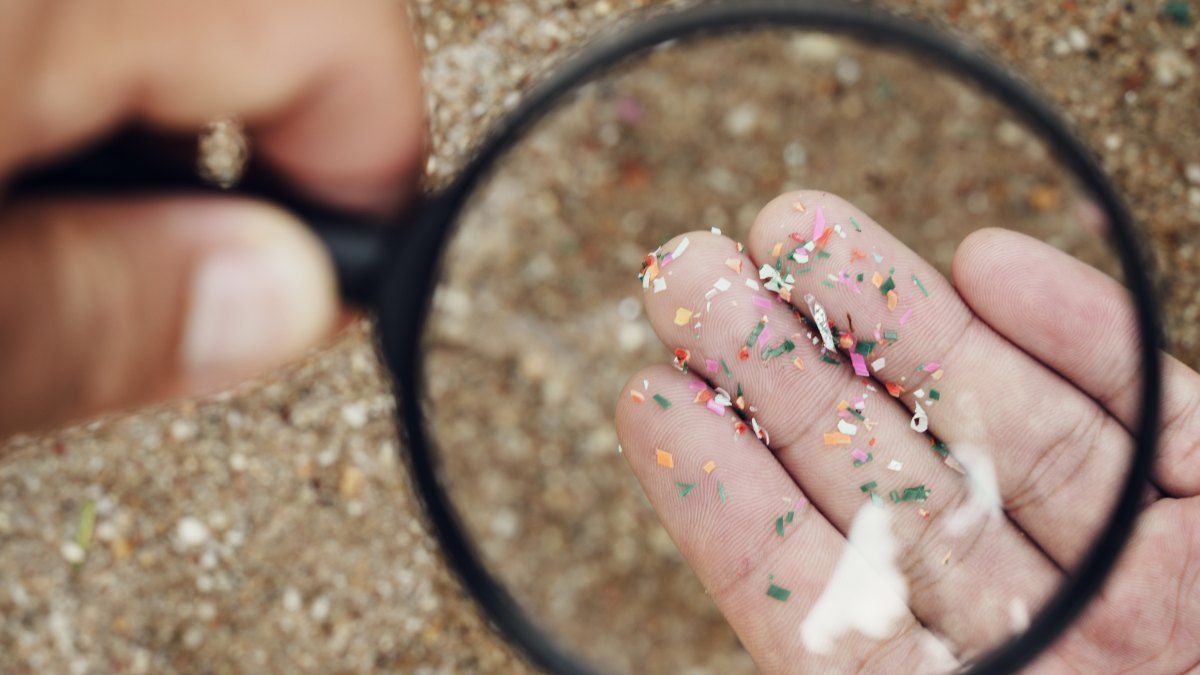
What Are Microplastics? Microplastics are tiny fragments of plastic. They’re smaller than 5 millimeters. They come from broken-down bottles, synthetic clothing, packaging, and everyday plastics. Over time, these particles enter soil, rivers, and oceans. And yes, they end up in drinking water. Where Do They Come From? Plastic bottles and bags breaking apart Synthetic fabrics shedding microfibers in laundry Tires wearing down on roads Industrial waste and packaging debris These fragments don’t go away. They just get smaller and spread further. Are Microplastics Really That Bad? Research is still developing, but the evidence is worrying. Microplastics have been found in: Tap water Bottled water Table salt Fish and shellfish Even human blood and lungs ⚠️ The concern is that these tiny particles may cause inflammation, stress to organs, or chemical exposure. They can also carry harmful pollutants on their surfaces. The truth? We don’t know the full long-term health impact yet. But early signs suggest they are not harmless. Microplastics in Bottled Water Here’s the irony: many people switch to bottled water to avoid contaminants. But studies show bottled water can contain twice as many microplastics as tap water. That’s because plastic bottles themselves shed particles. So buying bottled water often makes the problem worse. How Water Filtration Helps The good news: water treatment can remove many microplastics. Reverse Osmosis (RO): This system forces water through a tight membrane. It blocks tiny contaminants, including microplastics. Carbon Block Filtration: High-quality carbon filters trap particles and improve taste. Sediment Filtration: Removes larger fragments before they reach taps or appliances. Together, these systems protect your water from microplastics and other pollutants. Beyond Filtration — Stopping Microplastics at the Source Filtration helps with what’s already in water. But we can also reduce future microplastic pollution. ✅ Use fewer single-use plastics ✅ Wash synthetic fabrics in laundry bags that capture fibers ✅ Avoid bottled water when possible ✅ Recycle properly ✅ Support local clean water initiatives Small steps add up. For Homes and Businesses Whether you’re a homeowner, a hotel , or a restaurant, microplastics are a concern. Customers notice water quality. Families want peace of mind. Businesses want to protect their image. Installing filtration does more than improve taste. It shows a commitment to health, sustainability, and safety. The Bottom Line Microplastics are everywhere. They’re in our oceans, our food, and our water. And while research continues, the best choice is clear: don’t ignore them . Filtration is a proven way to reduce exposure. Paired with smarter plastic use, it protects both people and the planet. Take Action Today Don’t wait until the problem gets worse. With the right system, you can have cleaner, safer water — without microplastic worries. 📞 Call us for a free water evaluation. Let’s protect your home, your health, and the environment — one glass at a time.

Water should taste clean and refreshing. But sometimes it just tastes odd. Bad-tasting water is more common than most people realize. The taste actually gives you clues about what’s in it. Here are the seven types of bad-tasting water — and how to fix each one. 1. Bitter Water Bitter water is usually caused by chlorine or chloramine. City water systems add these chemicals for disinfection. They keep water safe from bacteria but leave a bad aftertaste. The Fix: A carbon filter removes chlorine and chloramine. The result is cleaner, fresher-tasting water. A whole-home system means every tap is improved. 2. Metallic Water If your water tastes metallic, it may contain iron, manganese, or copper. Iron leaves a rusty taste. Copper can taste sharp. Manganese has a bitter, inky flavor. The Fix: Specialized filters remove metals. A whole-home filtration system prevents staining and protects appliances. An iron filter or water softener often solves the problem. 3. Salty Water Salty or briny water is a sign of high sodium or chloride. This can happen in coastal areas where saltwater seeps into wells. It also comes from water treatment byproducts in some city systems. The Fix: Reverse osmosis (RO) systems remove sodium and chloride. RO works at the tap for drinking water. In some cases, a larger system is needed for whole-home treatment. 4. Earthy or Musty Water Earthy-tasting water is usually from organic matter. Leaves, soil, or algae can seep into the water supply. This is common in well water or during seasonal changes in city water. The Fix: Carbon filtration removes organic compounds. A sediment pre-filter helps, too. Together they restore fresh, clean taste. 5. Rotten Egg Water Nothing is worse than the smell and taste of rotten eggs. This comes from hydrogen sulfide gas. It’s common in well water. It can also come from bacteria in water heaters. The Fix: Aeration and specialized sulfur filters remove the gas. In some cases, disinfection is required. The result is odor-free, great-tasting water. 6. Moldy or Dirty Water Water that tastes moldy may contain bacteria or biofilm. This can happen if pipes or filters aren’t maintained. It can also come from untreated wells. The Fix: UV disinfection kills bacteria. Chlorination systems are another option. Pairing UV with carbon and sediment filters gives full protection. 7. Flat or Stale Water Sometimes water doesn’t taste bad — just flat. This can happen if water sits too long in pipes. It can also be caused by imbalanced minerals. The Fix: A filtration and aeration system refreshes the water. Reverse osmosis improves the taste for drinking. Keeping systems maintained prevents stale water buildup. Why Taste Matters Bad taste is more than an annoyance. It’s often a warning sign of real problems. Metals can damage appliances. Bacteria can harm health. Excess chlorine or salt can affect skin, hair, and cooking. Fixing the water taste protects both your family and your property. Our Approach We don’t believe in one-size-fits-all filters. Every home or business has unique water. We start with a water test. Then we design the right system to solve the specific issue. From carbon filters to reverse osmosis, softeners to UV, we have solutions. The goal is simple: water that tastes as good as it should. If your water tastes bitter, salty, metallic, or just plain wrong, don’t ignore it. The taste is telling you something. With the right system, you can enjoy safe, clean, refreshing water every day. 📞 Call us today for a free water evaluation. We’ll help you get rid of bad taste — and get back to water you love.

There’s a lot of misinformation about water filtration. Some of it comes from bottled water companies. Some of it comes from outdated advice. And some of it comes from confusion about what filters really do. It’s time to set the record straight. Here are the most common water filtration myths — and the facts that bust them. Myth #1: Tap Water Is Already Safe Many people believe that city tap water is perfectly safe. After all, it meets government standards. Fact: City water often contains chlorine, chloramine, PFAS, pesticides, and even trace pharmaceuticals. Those “safe levels” don’t always mean healthy levels. And standards change slowly. The truth? Tap water may be legal, but that doesn’t mean it’s pure. Myth #2: Bottled Water Is Better Bottled water looks fancy in clear plastic bottles. It’s marketed as “spring fresh.” Fact: Most bottled water is just filtered tap water. Sometimes it’s no cleaner than what’s in your faucet. It costs hundreds of times more than home filtration. And it creates mountains of plastic waste. Filtered water at home is cleaner, cheaper, and greener. Myth #3: Filters Are All the Same People often buy a pitcher filter and think they’re covered. Fact: Not all filters remove the same contaminants. A pitcher filter may reduce chlorine taste but won’t remove PFAS. An under-sink reverse osmosis system targets a much wider range. A water softener solves hardness but doesn’t filter chemicals. The right system depends on your specific water. Myth #4: Hard Water Isn’t a Big Deal Some say hard water is only about spots on glassware. Fact: Hard water destroys appliances over time. It leaves scale in dishwashers, water heaters, and ice machines. It drives up energy costs and shortens appliance life. In commercial kitchens and hotels, this means big repair bills. In homes, it means early replacements. Myth #5: Well Water Is Always Clean Many seasonal or rural homeowners think wells are safe. Fact: Well water isn’t regulated. It can contain bacteria, sulfur, arsenic, or pesticides. The only way to know is regular testing. And the only way to be safe is treatment. Myth #6: Water Filtration Is Too Expensive Some people avoid filtration because they see it as a luxury. Fact: Water systems save money. They prevent appliance repairs. They cut bottled water costs. They extend the life of plumbing. And they protect your health, which is priceless. Over time, filtration pays for itself. Myth #7: Filters Last Forever Many forget about maintenance. Fact: Filters and membranes must be replaced on schedule. If not, they clog, break down, and stop working. A professional service plan ensures clean, reliable water. Skipping maintenance is like driving without changing the oil. Myth #8: Any System Will Work Anywhere Some homeowners buy off-the-shelf systems online. Fact: Every water supply is different. What works in one city may fail in another. A system must be matched to your water test results. That’s why custom solutions outperform “one-size-fits-all.” Myth #9: Water Tastes Fine, So It Must Be Clean If it tastes good, people assume it’s safe. F act: Many dangerous contaminants have no taste or smell. Lead, arsenic, and PFAS are invisible. You can’t detect them without testing. Water should be tested — not guessed at. Why Myths Stick Around Water isn’t something people think about until there’s a problem. That’s why myths spread. Companies profit from bottled water. Old advice keeps circulating. And many people assume “out of sight, out of mind.” The Real Facts About Filtration Water filtration protects health. It saves money long-term. It improves taste and comfort. It protects homes, businesses, and medical facilities. The fact is simple: clean water matters. Don’t let myths stop you from protecting your water. With the right system, you’ll enjoy safe, clean, and cost-effective water every day. 📞 Call us today for a free water evaluation. We’ll separate the myths from the facts — and deliver water you can trust. #knowyourwater #cleanwater #safewater

Welcome, Snowbirds! Florida welcomes thousands of seasonal residents every year. Warm weather. Sunshine. Sandy beaches. But there’s one thing most snowbirds don’t expect. The water. Florida water is different. It looks fine in the glass. But it can cause hidden problems in your seasonal home. Here’s what every snowbird should know before turning on the tap. Florida Water Is Hard Water Much of Florida has hard water. That means high levels of calcium and magnesium. Hard water leaves spots on glass. It clogs showerheads. It shortens the life of appliances. Dishwashers, washing machines, and coffee makers all suffer. For snowbirds, this means returning every winter to find scaled-up fixtures or failing equipment. Chlorine Levels Can Be High Florida cities add chlorine and chloramine to the water to disinfect it. That’s safe by health standards. But it can make your water taste bad. It can dry out your skin and hair. It can even affect how food and coffee taste. Snowbirds often notice the difference compared to their northern water supply. Well Water Risks Not every Florida home is on city water. Many rely on private wells. Well water can contain: Bacteria like E. coli Sulfur that smells like rotten eggs Iron that stains sinks and laundry Seasonal residents may not realize their vacation home’s well hasn’t been tested in years. Appliance Damage Adds Up Hard water is especially rough on seasonal homes. Appliances sit unused for months. When water evaporates, minerals are left behind. That creates extra scale and corrosion. It means more repair bills when you return. And less time enjoying Florida. Your Health Matters Too Water contaminants don’t just affect plumbing. They affect people. Skin irritation. Dry hair. Unpleasant taste. And in some cases, exposure to unsafe bacteria. Snowbirds come to Florida for health and relaxation. Clean water should be part of that plan. Solutions for Seasonal Homes The good news: water problems can be fixed. A properly sized water softener removes hardness. A filtration system removes chlorine, sulfur, iron, and more. A reverse osmosis system delivers pure drinking water. These systems protect appliances. They make showers more pleasant. And they give you great-tasting water every day of your stay. Seasonal Service Plans Snowbirds don’t want to spend their winter vacation dealing with water problems. That’s why seasonal service plans are smart. We can: Test your water before you arrive Service and sanitize systems while you’re away Deliver salt or filters Ensure your home is ready for use the day you return It’s peace of mind, whether you’re here for three months or six. Real-Life Example One snowbird family returned to their Florida condo each year to find cloudy dishes and low water pressure. The cause? Hard water scale inside their dishwasher and pipes. After installing a softener and filtration system, the issues disappeared. Now they arrive each winter to a clean, ready-to-go kitchen — and better coffee. Don’t Let Water Surprise You The Florida sun may be predictable. The water is not. Snowbirds need to protect their seasonal homes from hidden water problems. With filtration and softening, you avoid costly repairs, enjoy healthier water, and relax without worry. Next Step If you’re a snowbird with a Florida home, don’t wait until the next trip to discover water damage. Schedule a free water evaluation now. We’ll make sure your seasonal home is safe, comfortable, and ready for your return. 📞 Call us today and enjoy Florida — with better water.
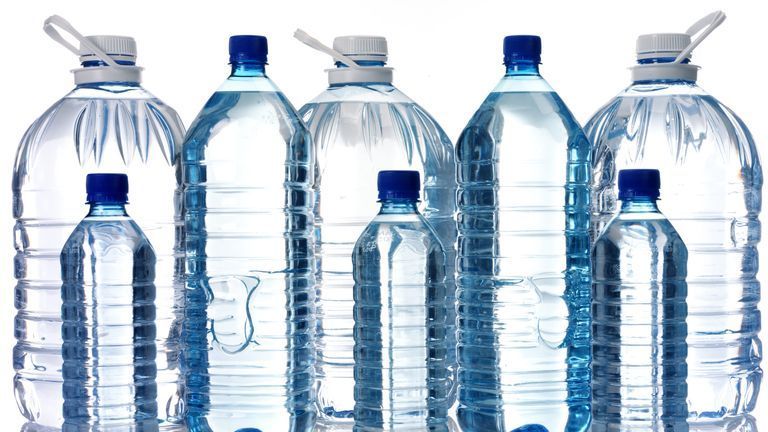
Clean water is a must for every home. Many families buy bottled water because they think it is safer and more convenient. But bottled water is costly, wasteful, and often no better than tap water. A home water filtration system is the smarter choice. It gives you safe, great-tasting water at a lower cost. Let’s look at why filtration wins over bottled water. 1. The True Cost of Bottled Water Bottled water may seem inexpensive, but the cost adds up quickly. A family of four can spend $600–$1,200 a year on bottled water. That’s money you could save with a whole-home water filter or an under-sink reverse osmosis system. A water filtration system is a one-time investment. Maintenance costs are low. Over time, you save hundreds of dollars. This makes filtered water cheaper than bottled water. 2. Convenience Without the Hassle Buying bottled water means heavy cases, storage space, and trips to the store. And sometimes, you run out when you need it most. With filtered water at home, you never run out. Clean water flows straight from the tap. No more lifting or hauling. No more wasted time. 3. Bottled Water Is Not Always Safer Many believe bottled water is purer. That’s not always true. Some bottled water is just filtered tap water. Regulations for bottled water are not stricter than tap water. Studies have found microplastics and chemical contaminants in bottled water . A water filtration system for the home removes chlorine, PFAS, heavy metals, and other toxins. You get peace of mind knowing your water is truly clean. 4. The Environmental Cost of Bottled Water Plastic bottles are damaging our planet. Over 50 billion bottles are used every year in the U.S. Only about 30% are recycled. The rest end up in oceans and landfills. A home filtration system means no more single-use plastics. It’s the eco-friendly water solution your family and the environment need. 5. Health Benefits of Water Filtration Filtered water is healthier. Removes chlorine, lead, pesticides, and other toxins. Reduces hard water minerals that affect skin and hair. Improves taste and smell. When you choose home water softeners or reverse osmosis filters, you know what’s in your water. And what’s not. 6. Taste That Makes a Difference Water should taste fresh. Bottled water often tastes flat or even like plastic. A water filter system improves taste by removing chlorine and impurities. Clean water encourages your family to drink more and stay hydrated. 7. Long-Term Value Bottled water is like rent. You pay, but you own nothing. A water filtration system is an investment. Once installed, it gives you clean water for years with little upkeep. That’s long-term value. 8. A Smart and Sustainable Choice Families today want smart, eco-friendly solutions. Filtration checks both boxes. By switching to filtered water at home: You save money. You protect the planet. You drink cleaner, safer water. Bottled water is costly, inconvenient, and harmful to the planet. It’s not always safer, either. A home water filtration system is the clear winner. 💧 It’s cheaper. 💧 It’s healthier. 💧 It’s eco-friendly. 💧 It’s always available on tap. The choice is simple: ditch bottled water and enjoy the benefits of water filtration. 👉 Contact us today to learn more about affordable water filters for your home.

Hard water is common in commercial kitchens . It’s full of minerals like calcium and magnesium. These minerals don’t just float harmlessly in your water. They build up. They damage. And they cost you money. Hard water is water with high mineral content. These minerals enter your water supply from natural deposits. They stick to surfaces, form scale, and change how water behaves. In a home, hard water is annoying. In a commercial kitchen, it’s expensive. Cost #1 – Equipment Repairs and Replacements Scale buildup in dishwashers, coffee makers, and steam ovens is a silent killer. Minerals coat heating elements. They clog lines. They corrode metal. The result? More breakdowns. More repair calls. And when repairs aren’t enough, early replacements. Commercial kitchen equipment isn’t cheap. Neither are emergency service calls. Hard water makes both happen more often. Cost #2 – Higher Energy Bills Scale is a terrible heat conductor. When it coats heating elements, they work harder. This means more energy use. Your bills go up. Dishwashers take longer to heat water. Steamers need more time to reach temperature. Even ice machines pull more power when mineral buildup starts. That’s money wasted every month. Cost #3 – Lower Efficiency Hard water slows down your kitchen. Dishwashers leave spots and film. This means more rewashing. Steam ovens run slower. Ice machines produce less ice. Every delay in a commercial kitchen costs time — and time is money. Cost #4 – Extra Cleaning Supplies Hard water leaves stains and residue. Staff need more soap and chemicals to clean surfaces and dishes. They use more elbow grease. And that’s labor cost. Over time, these cleaning supply costs add up — and so does staff frustration. Cost #5 – Poor Customer Experience It’s not just about what’s behind the scenes. Hard water changes taste. It makes coffee bitter. It flattens sodas. It leaves spots on glassware. Customers notice. When your drinks and presentation suffer, so does your reputation. Restaurants, hotels, hospitals, bars and catering facilities all depend on efficiency. A slow, damaged, or unreliable kitchen hurts the whole business. Hard water damage is preventable. But ignoring it turns a small problem into a costly one. The Solution – Water Softening and Filtration A commercial-grade water softener removes calcium and magnesium. Filtration removes chlorine, sediment, and other contaminants. Together, they: Protect equipment Reduce energy use Improve taste Lower cleaning costs Extend appliance life This isn’t just a “nice to have.” It’s an investment that pays for itself. One local restaurant was replacing dishwasher heating elements twice a year, and its ice machine produced half its normal output. After installing a commercial water softener and filtration system, repairs stopped. Energy use dropped. Customers even complimented the clearer glassware and better taste. The system paid for itself in less than 18 months. Hard water costs more than a proper water system ever will. We design and install commercial water systems that fit your business. We handle the maintenance. We monitor performance. And we make sure your kitchen runs on clean, efficient water every day. The longer you wait, the more damage is done. Don’t let hard water drain your budget. Get a free water evaluation for your commercial kitchen today. 📞 Call us now — your equipment (and your bottom line) will thank you.
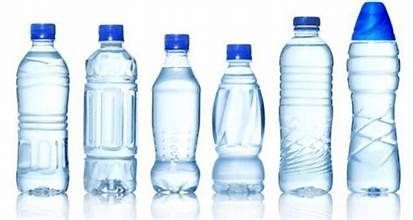
Ever turned over a plastic water bottle and seen a little number inside a triangle? You’re not alone. Most people have no idea what that number means. But here’s the truth: those numbers matter more than you think. They tell you the type of plastic your bottle is made from and if it is safe. And some plastics are safer than others — especially when it comes to drinking water. Let’s break it down. ♻️ 1 – PET or PETE (Polyethylene Terephthalate) You’ll see this on most single-use water and soda bottles. ✅ Pros: Lightweight Recyclable ⚠️ Cons: Not meant for reuse Can leach chemicals if heated or reused Shouldn’t be left in a hot car Stick to one use. Recycle it, then grab a fresh bottle or a better reusable option. ♻️ 2 – HDPE (High-Density Polyethylene) Found in milk jugs, some reusable bottles, and detergent containers. ✅ Pros: Durable Safe for reuse Widely accepted in recycling programs If you see a #2 on a bottle, you’re in safer territory. ☠️ 3 – PVC (Polyvinyl Chloride) Used in pipes, shrink wrap, and some cheaper plastic packaging. ❌ Warning: Contains harmful chemicals like phthalates Linked to hormone disruption Not safe for food or drink contact Avoid using anything with this code for water or food storage. ♻️ 4 – LDPE (Low-Density Polyethylene) Often used in squeezable bottles, grocery bags, and plastic wraps. ✅ Safer than PVC, but not the best for long-term water storage. Recyclable in some places, but not always accepted curbside. ♻️ 5 – PP (Polypropylene) Found in reusable water bottles, yogurt containers, and baby cups. ✅ Pros: Excellent heat resistance Safe for reuse Microwave-safe (but not ideal for water) If you’re looking for a safe plastic bottle, this is a solid pick. ☠️ 6 – PS (Polystyrene) This is the stuff foam cups and takeout containers are made of. ❌ Cons: Can leach styrene, a possible carcinogen Easily breaks down into microplastics Not safe for hot or acidic drinks Best advice? Skip it completely. ☠️ 7 – Other (Mixed Plastics / Polycarbonate) This is the “grab bag” category. It includes plastics made with BPA, a known endocrine disruptor. Used in: Large water jugs Baby bottles (older ones) Some reusable bottles and sports containers 🚫 Avoid whenever possible. Especially if you’re storing hot water or leaving it in the sun. 🔥 Why Heat Matters Plastics can release harmful chemicals when exposed to heat. That means: Don’t reuse disposable water bottles. Don’t store water bottles in your car or garage. Don’t microwave plastic containers unless marked microwave-safe. Even "safe" plastics can break down and leach chemicals under extreme conditions. 💡 Safer Alternatives Want to ditch plastic worries altogether? Here are better choices: Stainless steel bottles Glass bottles with silicone sleeves Certified BPA-free reusable plastics (#2 or #5 only) Better yet — install a water purification system at home. You’ll reduce plastic waste and protect your health. 🧪 Clean Water Starts at the Source At Safeway Water Technologies/Fix Any Water , we believe safe water starts at home and should never be a mystery. At Fix Any Water, we offer: Reverse Osmosis Systems Whole-Home Filtration Repairs Salt delivery UV Disinfection Units Free Water Testing Well or City Commercial & Residential Installations No more bottled water. No more plastic confusion. Just clean, clear, healthy water—every time you turn on the tap. 📍 Serving Port St. Lucie and Beyond Whether you’re a homeowner tired of bottled water… Or a business that wants to cut down on plastic and protect your customers… We’ve got a water solution for you. 💧 Schedule your free consultation today. 🐥 Because not all water or bottles are treated equally.
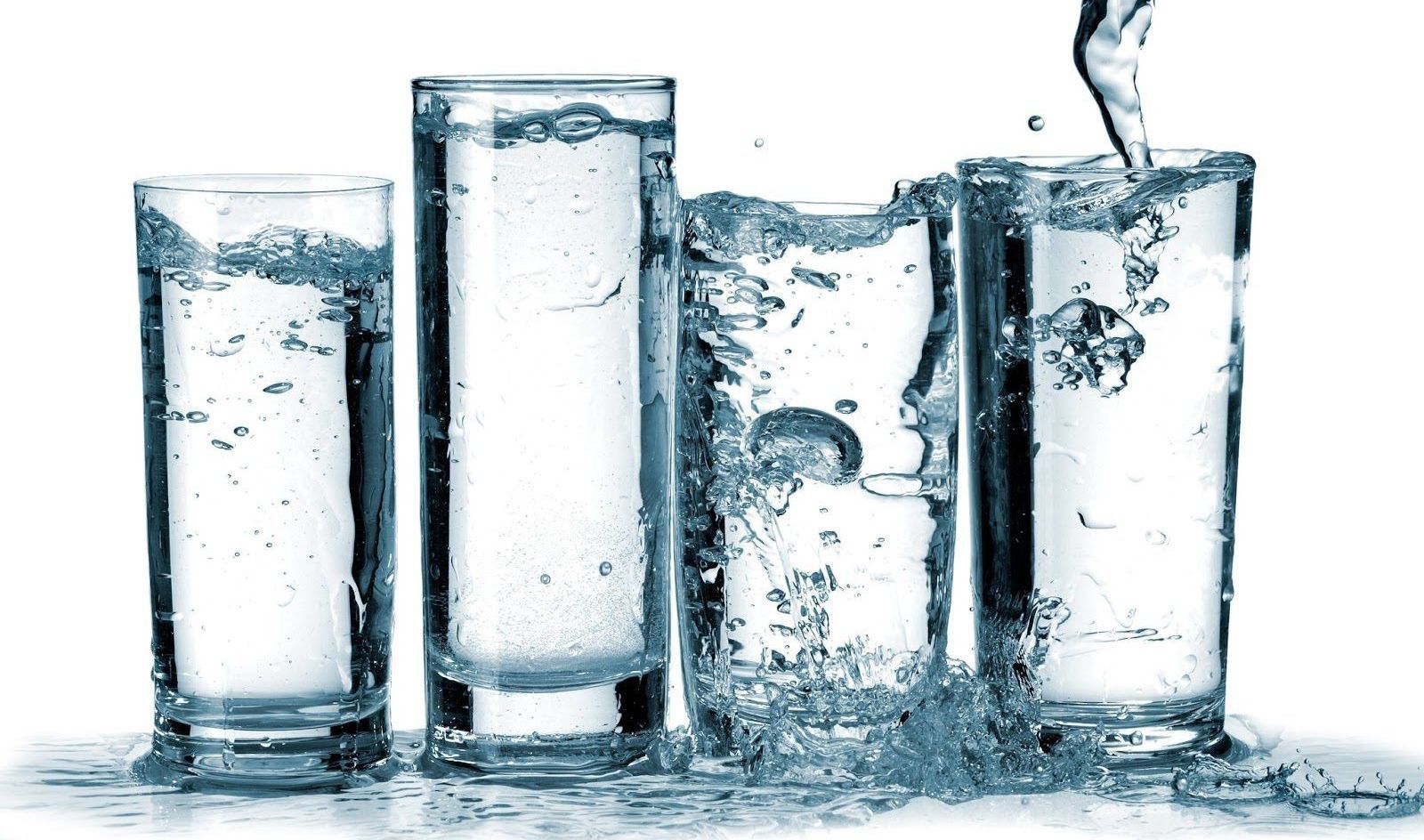
You expect clean water from your faucet. But city water is not always clean. It’s treated, yes. But treatment doesn’t mean pure. City water can carry dangerous contaminants. Some you can smell. Some you can taste. Others are invisible. But they can still harm you. You can check yours HERE. Now, let’s talk about what’s really in your tap. And how you can protect yourself. Common Contaminants in City Water 1. Chlorine and Chloramines Cities use chlorine to kill bacteria. It’s a disinfectant. But it’s also a chemical. Chlorine can dry your skin. It can make your water smell like a pool. It also forms byproducts—called trihalomethanes (THMs). THMs are linked to health risks. Some cities use chloramines instead. They last longer in pipes. But they’re harder to remove. And they can be more irritating to your body. 2. PFAS – The Forever Chemicals PFAS stands for per- and polyfluoroalkyl substances. They don’t break down. They stay in water. They stay in your body. They’ve been linked to cancer, liver damage, and fertility issues. And yes, they’ve been found in city water. All across the U.S. Even in small towns. PFAS removal is essential. 3. Lead and Heavy Metals Old pipes can leach lead. Even if the water leaves the plant clean, it can pick up lead on the way to your home. Other metals—like arsenic and mercury—can sneak in too. These metals build up in the body. And they’re dangerous. Especially for children, the elderly, and autoimmune challenged. 4. Bacteria and Parasites Water treatment kills most pathogens. But sometimes they survive. Or enter the water after treatment. Outbreaks of E. coli and cryptosporidium have occurred. Even in developed cities. Boil water notices often follow these outbreaks. But what if you didn’t have to worry? 5. Pesticides and Pharmaceuticals Runoff from farms carries pesticides. Flush your meds? Traces of pharmaceuticals have been found in municipal water. Even antidepressants, antibiotics, and hormones. They are found in tiny amounts. But we drink them daily. The long-term effect? We’re still learning. How Contaminants Enter City Water You’d think it’s safe because it’s tested. But testing only checks for certain things. And only at certain times. Contaminants can come from: Leaky sewer systems Stormwater runoff Industrial discharge Failing infrastructure Natural mineral deposits And more... City water systems are aging. In some places, pipes are over 100 years old. And they weren’t built to handle today’s pollutants. Health Risks of Contaminated City Water Contaminated city water is not just gross. It’s dangerous. Health risks include: Skin rashes Digestive problems Nervous system damage Hormone disruption Increased cancer risk Infants, the elderly, and people with weak immune systems are most at risk. But everyone should be concerned. What You Can Do? You can’t control what the city does. But you CAN protect your home. Here’s how: 1. Get Your Water Tested Start with a test. Know what’s in your water. We offer affordable city water testing . It’s fast and accurate. 2. Install a Filtration System One size doesn’t fit all. We match filters to your needs. Carbon filters remove chlorine and some chemicals. Reverse osmosis removes PFAS, heavy metals, and more. Softening systems handle hardness. UV light kills bacteria. 3 . Maintain Your System Filters need to be changed. Systems need service. We offer service plans. So your water stays safe. Benefits of Clean Water Clean water is more than peace of mind. It’s comfort. It’s protection. You’ll notice: Better taste and smell Softer skin and hair Healthier pets Cleaner laundry Longer-lasting appliances Clean water pays off. Why Work With Us We don’t just sell filters. We fix city water problems. We know your local water issues . We test. We install. We service. We make safe drinking water affordable. Whether it’s PFAS, chlorine, or hidden bacteria— We’re your solution. Final Thoughts City water isn't perfect. But your home can be. Don’t wait for another boil water notice. Don’t hope the city fixes everything. Take control. Protect your family. Filter your city water. 📞 Call us today for a test. 💧 Let’s fix your water—once and for all.
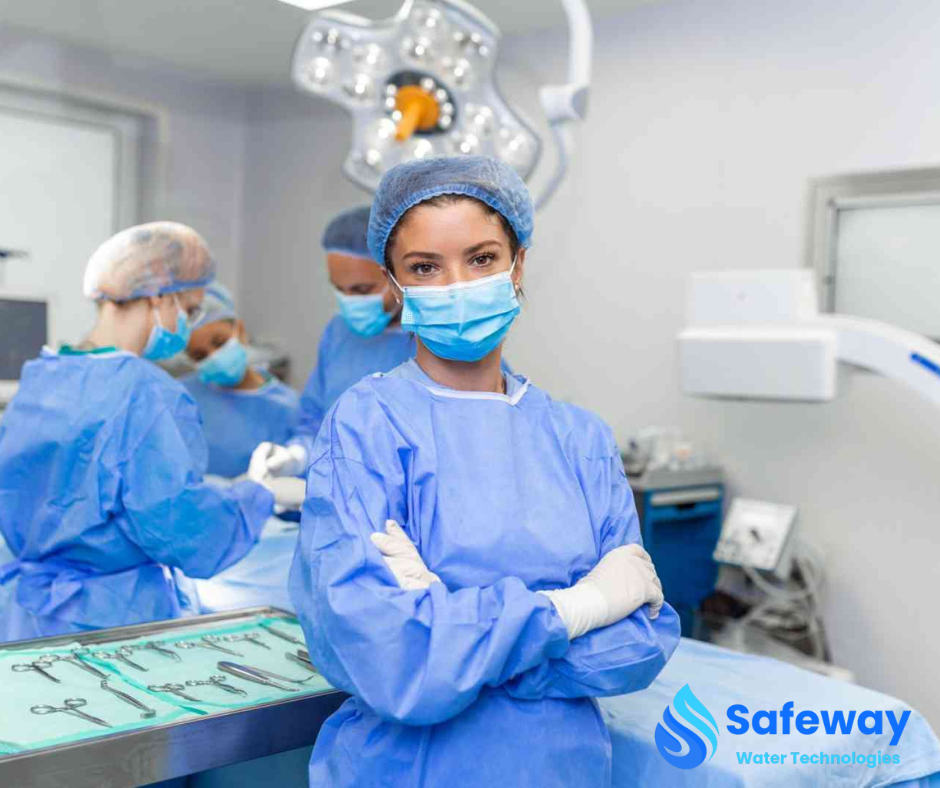
ST108 is here. Surgery centers across the U.S. now follow strict new rules for water used in sterile processing. But what if your center isn’t ready yet? Don’t panic. You’re not alone. Many facilities are still catching up. Here’s what you can do now to stay safe, stay open, and stay compliant. Understand What ST108 Requires The AAMI ST108 standard sets clear expectations. It defines water quality for every stage of reprocessing—cleaning, rinsing, disinfection, and sterilization. It’s not just about installing a reverse osmosis system. It’s about monitoring, documentation, and long-term maintenance. And yes, the inspections are getting tougher. Step 1: Perform a Gap Assessment Start with a system evaluation. Know exactly where you stand. We recommend bringing in a qualified water treatment company—like Fix Any Water. We’ll Inspect your current water system. Test water quality. Identify what’s missing. Provide a written report with recommendations. This gap assessment is your first line of defense. It shows you’re taking action. Step 2: Create a Compliance Plan Can’t upgrade everything at once? That’s okay. But you must have a plan. Write it down. List what needs to be fixed. Include budget estimates and a clear timeline. Keep it in your records. This documentation proves you’re not ignoring ST108. You’re preparing for it. Need help? We can help write your ST108 water compliance plan. Step 3: Increase Monitoring Right Now Even before you upgrade equipment, you can boost your testing schedule. Test your water more often. Track: Conductivity Total Dissolved Solids (TDS) Chlorine levels Endotoxins Bacteria count Use digital logs or detailed paper records. Surveyors love to see tracking data. Can’t do this in-house? Safeway Water Technologies offers routine water monitoring packages. We send the reports directly to your compliance binder. Step 4: Educate Your Staff ST108 isn’t just a facilities issue. Your team needs to understand what’s at stake. Teach your staff: What ST108 is Why water quality matters How to recognize water-related equipment failures When to call for service When staff are informed, your facility is safer. Plus, this training counts as part of your compliance preparation. Step 5: Use Temporary Water Solutions Let’s say you need 6–12 months to fully upgrade. In the meantime, you can use interim tools to stay safer. Consider: Portable RO carts Point-of-use water filters Extra sediment and carbon filtration More frequent filter changes We’ve helped many centers bridge the gap this way. It’s not perfect, but it’s a step in the right direction. Every effort you make shows good faith and protects your patients. Step 6: Talk to Your Accreditor Don’t avoid the topic. Be transparent with AAAHC, Joint Commission, or CMS surveyors. Show them: Your gap analysis Your implementation timeline Your monitoring logs This builds trust. It may even buy you more time to meet full ST108 compliance. And if you need help talking to them? We’ll assist with that too. Step 7: Partner with a Water Compliance Expert Surgery centers don’t need more vendors. You need a trusted partner. Fix Any Water specializes in: Surgery center water systems AAMI ST108 requirements Custom solutions that fit your budget We don’t just install. We train, test, maintain, and document everything. Our job is to keep you survey-ready—always. We also stay up to date with every revision of ST108, so you don’t have to. Why Waiting is Risky Here’s the hard truth: Non-compliance can lead to citations or even shutdowns. But there’s good news: Trying counts. What inspectors want to see is awareness and action. Don’t wait until you get flagged. Start now—even if you can’t finish right away. A Real-Life Example One Florida surgery center called us in a panic. They hadn’t upgraded their RO system. Their filters were outdated. Their water wasn’t testing within spec. We visited the next day. Performed a full water audit. Replaced key filters. Set up temporary RO. Started testing weekly. Within 30 days, they had a plan in place and were fully compliant in six months. They passed inspection with zero deficiencies. You can do the same. You Don’t Have to Do It Alone Safeway Water technologies is already helping surgery centers across Florida meet ST108 standards. We’ve seen every type of facility—small, large, new, and old. We know how to make it work. Whether you need a little help or full system design, we’re ready. Our services include: Water system upgrades Routine testing Emergency service ST108 documentation and support Staff training We also offer monthly maintenance plans to keep your water system running flawlessly. Final Thoughts Don’t wait until it’s urgent. ST108 is not going away. But you have options. Start with what you can do. Get a gap analysis. Create a compliance plan. Monitor your water. Educate your staff. Use temporary solutions. And work with a partner who knows the rules inside and out. Let us help you turn uncertainty into confidence. Your patients deserve clean water. Your team deserves peace of mind. Call us today to schedule your ST108 readiness review. We’ll help you comply, protect, and stay ahead—every step of the way.

Water is the foundation of life. For cannabis growers, it's the foundation of the entire operation. Every plant, system, and final product depends on water. But not just any water. It needs to be clean, consistent, and controlled. That’s where water purification comes in. In this post, we’ll break down why purified water is essential for cannabis cultivation and how it can protect your plants, your systems, and your profits. Cannabis Is a High-Value Crop Cannabis isn’t your average houseplant. It’s a high-dollar crop with tight margins and strict regulations. That means everything that goes into growing it—soil, nutrients, air, and water—needs to be of the highest quality. Many growers test their soil. They test their nutrient mix. But some overlook water quality. And that can be a costly mistake. Cannabis Plants Are Sensitive Cannabis is picky. The plants react quickly to stress, especially from what’s in the water. Municipal water often contains chlorine or chloramines. These are great for killing bacteria in drinking water, but they also kill beneficial microbes in soil and hydro systems. Hard water contains high levels of calcium, magnesium, and other minerals. These can cause "nutrient lockout," where the plant can't absorb the nutrients you’re feeding it. The result? Yellowing leaves, stunted growth, and lower yields. Even well water or collected rainwater can carry heavy metals, bacteria, or pesticides. These contaminants can hurt your plants or end up in your final product. Precision Feeding Requires Pure Water Feeding cannabis isn’t guesswork. It’s a science. Growers track pH and EC (electrical conductivity) closely. But when water is full of unknowns, it’s hard to maintain the right balance. Purified water starts at zero. That means growers can add exactly what they want, when they want, with no surprises. This consistency leads to healthier plants and better results, batch after batch. Hydroponic Systems Need Clean Water Hydroponics is popular in cannabis growing for good reason. It saves space, conserves water, and produces big yields. But it also relies heavily on water purity. If you run hard or contaminated water through a hydro system, you’re asking for trouble. Scale buildup from minerals can clog emitters. Biofilm from bacteria can form in reservoirs and tubing. Algae can grow faster than your plants. Clean water keeps the whole system running smoothly. It prevents downtime and cuts down on maintenance costs. That adds up, especially in large grows. Impacts on Processing and Products Water is also used beyond the grow room. It’s also needed for post-harvest rinsing, extraction, and product formulation. If your water carries metals, microbes, or chemicals, those can show up in your final product. That could mean a failed lab test. Worse, it could mean losing licensing or product recalls. Customers expect clean, safe cannabis. Lab testing is strict. States are cracking down. Purified water helps you meet standards and protect your brand. Waterborne Contaminants to Watch Out For Here are just a few of the things that can show up in untreated water: Chlorine and chloramine - kills microbes that help plants grow Calcium and magnesium – causes scale and nutrient lockout Iron and sulfur – stains equipment and affect taste Bacteria like E. coli – a big problem for product testing Pesticides and herbicides – can sneak in from runoff Heavy metals – dangerous to both plants and humans Any one of these can hurt your operation. Together, they can be devastating. Protect Your Investment Water issues don’t just affect your plants. They affect your equipment too. Contaminants lead to scale buildup, pipe corrosion, and system clogs. That means more downtime and higher repair bills. In some cases, it can even void your equipment warranties. Installing proper filtration protects your irrigation, hydroponic, and misting systems. It also keeps chillers, boilers, and dehumidifiers running cleaner and longer. Sustainability and Water Recycling Water is expensive. It’s also a limited resource in many regions. The cannabis industry uses a lot of it. With water purification systems, you can recycle and reuse your water. That’s better for the environment and your bottom line. Reverse osmosis systems paired with UV and carbon filtration can bring used water back to safe, clean levels. Many states are encouraging or requiring sustainable practices. Purified water helps you stay compliant and save money. The Best Water Treatment Methods for Cannabis Every facility is different. But most benefit from these core systems: 1. Reverse Osmosis (RO) Removes up to 99% of total dissolved solids (TDS), including salts, metals, and chemicals. RO is ideal for feeding systems and hydroponic setups. 2. Carbon Filtration Removes chlorine, chloramine, and organic compounds. Essential for protecting microbes in living soil. 3. UV Sterilization Kills bacteria and viruses. A good option for preventing contamination in water storage tanks. 4. Sediment Filters Prevents sand, dirt, and rust from damaging pumps and emitters. We customize these systems based on your grow operation’s size, water source, and goals. Avoid Costly Mistakes Too many growers wait until there’s a problem. They see yellow leaves. They fail a lab test. A pump clogs or a harvest underperforms. Then they investigate the water. Be proactive. Testing and purifying your water up front saves time, money, and stress down the line. Partner with Water Experts At Fix Any Water ~ Safeway Water Technologies, we understand the cannabis industry. We’ve helped growers and manufacturers across Florida and beyond design water treatment systems that improve crop quality, reduce risk, and meet strict regulations. We’ll test your water, identify issues, and build a system that works for your setup, whether you're running soil, coco, or hydro. Residential grow? No problem. Commercial facility? We’ve got you. Our goal is simple: help you grow clean, compliant, high-quality cannabis, one drop at a time. Ready to Get Started? Reach out today for a free water consultation. Let’s talk about your current system, your water source, and how we can help you grow better with cleaner water. 📞 866-928-3795 📧 office@fixanywater.com 🌐 www.fixanywater.com Fix Any Water – Trusted Filtration Experts for the Cannabis Industry.
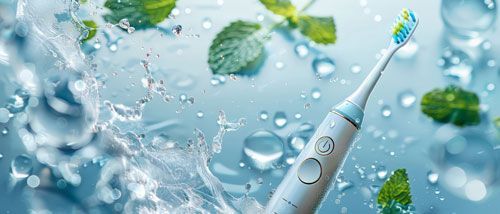
Fluoride. It's one of the most debated minerals in water treatmen t. For decades, it’s been added to tap water across the U.S. to prevent tooth decay. But in recent years, many homeowners are asking a different question: Is it still safe? Or is it time to remove fluoride? At Fix Any Water, we believe everyone deserves the full story. So let’s break it down — the good, the bad, and the ugly of fluoride in water. ✅ The Good: Fluoride Fights Cavities Fluoride is a natural mineral. It’s found in rocks, soil, water, and even some foods. In the 1940s, researchers noticed something. People who drank water with natural fluoride had fewer cavities. Cities began adding it to their water supply. Fluoride helps by: Strengthening tooth enamel Reversing early signs of decay Reducing dental costs, especially for kids The CDC even calls water fluoridation one of the greatest public health achievements of the 20th century. In short? Fluoride works. ⚠️ The Bad: Too Much Fluoride = Too Much Risk Fluoride isn’t all good news. While a small amount is helpful, too much can harm the body. Here's how: 1. Dental Fluorosis When children consume too much fluoride before their adult teeth form, it can leave white spots, stains, or even pitting on their teeth. It’s not dangerous, but it's ugly and permanent. 2. Bone Issues High levels of fluoride over many years can cause skeletal fluorosis. This condition makes bones stiff and joints painful. It’s rare in the U.S. but happens in countries with high natural fluoride levels. 3. Fluoride Is Everywhere We don’t just get fluoride from water. It’s in toothpaste, mouthwash, black tea, canned fish, and even processed foods. All these sources add up. Some people may be getting more than they think. 🧬 The Ugly: Fluoride’s Past as a Thyroid Drug Here’s something few people know: Fluoride was once used to treat thyroid disease. In the 1930s and 1940s, doctors in Europe prescribed fluoride to slow down overactive thyroids (called hyperthyroidism). Why? Because fluoride reduces iodine absorption, which is essential for healthy thyroid function. Patients were given 2 to 5 mg per day. That’s similar to what many Americans now get from: Tap water Fluoridated toothpaste Daily diet If you already have low thyroid function (Hashimoto's or hypothyroidism), this might matter. Research is still ongoing, but the historical use of fluoride for thyroid suppression is real, and rarely discussed. ❓More Concerns Being Studied Over the past decade, scientists have raised new questions about fluoride. Some studies suggest potential links to: Lower IQ in children Higher risk of ADHD Thyroid disruption Kidney strain Early puberty or reproductive issues Not all of these claims are proven. But they’re enough to warrant more research, especially for pregnant women, children, and those with chronic health conditions. 🌍 What Other Countries Are Doing Fluoride isn’t treated the same everywhere. United States: Over 70% of public water systems still add fluoride. Canada: Many cities are removing fluoride from their water. Most of Europe: Does not fluoridate. They rely on toothpaste and dental care instead. India and China: Fight to remove natural fluoride from water due to high levels. There’s no global agreement. That says a lot. 🧪 Should You Be Worried? You don’t need to panic. But you should be informed. Start by checking your local water report . If you’re on city water, your provider must tell you how much fluoride is added. The U.S. recommended level is 0.7 mg/L. If you’re on well water, fluoride may occur naturally. Some wells test as high as 4 mg/L, which is above the safe limit. 💡 What Can You Do? At Fix Any Water , we help homeowners take control. Here’s how: ✅ Test Your Water We offer fluoride testing for homes with city or well water. ✅ Talk to Your Doctor or Dentist Fluoride can be helpful, especially if you’re cavity-prone. But those with thyroid issues or kidney problems may need to reduce their intake. ✅ Choose the Right Filter Not all filters remove fluoride. A simple Brita won’t do it. Look for: Reverse Osmosis Systems Activated Alumina Filters Certified fluoride-removal filters for under-sink or whole-home use We can help you pick the right one. 🧼 Our Take at Fix Any Water We’re not anti-fluoride. We’re pro-choice. You should have access to fluoride facts. And you should be able to decide whether you want it in your water or not. Our goal is to make that choice easy, affordable, and backed by clean science. Whether you want fluoride out or just want to understand your risk, we’ve got your back. 📞 Need Help? Fix Any Water is here for you. We serve Florida homes and businesses with: Water testing Fluoride removal Whole-home filtration Friendly service you can trust 👉 Call us today or visit www.FixAnyWater.com 💧 Clean Water Starts Here. #FixAnyWater | #FluorideFacts | #WaterYouCanTrust | #SafeWaterStartsHere
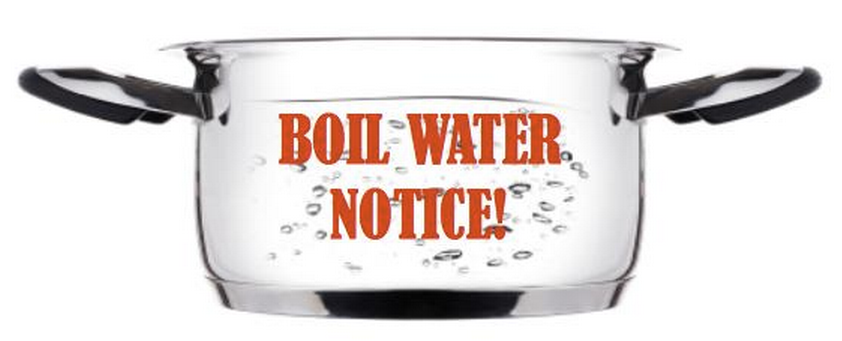
Boil water notices are more common than you might think. They affect thousands of homes and businesses every year. If you've ever received one, you know it can cause panic and confusion. But there’s no need to worry. With the right knowledge and tools, you can stay safe and maintain clean water. Actually, What Is a Boil Water Notice? A boil water notice is a public health warning. It tells people that the local water supply may be unsafe to drink. The notice is usually issued by a city or county when: A water main breaks A natural disaster damages the system A routine water test finds contamination Pressure drops in the pipes Repairs or upgrades are being done In most cases, officials are worried about harmful bacteria like E. coli or other microbes getting into the system. When the pressure drops or equipment fails, dirty water can flow backward into clean lines. Why Are Boil Water Notices Important? Drinking unsafe water can make you sick. It can lead to stomach pain, nausea, vomiting, and diarrhea. In serious cases, it can cause infections, especially for people with weak immune systems. That’s why boil water notices exist—to protect your health. They’re not just a suggestion. They are a legal advisory, and you must follow them until they are officially lifted. What to Do When You Get a Boil Water Notice Don’t wait. Act fast to protect your household or business. Here are simple steps you should take: 1. Boil All Tap Water Before Use Bring water to a full rolling boil for at least one minute. Let it cool before using. This kills bacteria, viruses, and parasites. 2. Use Bottled Water If You Can Bottled water is the safest option for drinking, brushing teeth, making ice, washing fruits and vegetables, or mixing baby formula. 3. Don’t Use Ice from Your Icemaker Throw out any ice made during the notice. Turn off your icemaker to prevent it from pulling in contaminated water. 4. Avoid Tap Water for Cooking Boil water first or use bottled water to boil pasta, rice, or other foods. 5. Sanitize Dishes Properly Use hot, soapy water, and add one teaspoon of unscented bleach per gallon for a final rinse. If you have a dishwasher with a “sanitize” cycle, it’s safe to use. 6. Don’t Brush Your Teeth with Tap Water Even if you don’t swallow, germs can still enter your body. Use boiled or bottled water instead. 7. Give Pets Safe Water Too Animals can get sick just like humans. Boil their water or use bottled water during a notice. When the Notice Is Lifted Once your local authority says the water is safe again, it’s still important to clean your home systems: Flush all taps by letting them run for several minutes Empty and clean ice makers and water coolers Change refrigerator filters and under-sink filters Sanitize your softener or treatment systems If you have a private well, get it tested Boil Water Notices and Businesses Restaurants, hotels, clinics, and other businesses must take extra steps. Health inspectors often require these businesses to shut down temporarily or follow strict protocols. That may include: Using only bottled or boiled water Closing ice machines and soda fountains Disabling drink dispensers connected to tap water Displaying signs in bathrooms and sinks This can cost businesses time and money. Having a water filtration system in place can help prevent downtime. How a Water Filtration System Helps A properly designed home or commercial water filtration system can offer protection during boil water notices. While no single system is perfect for every situation, the right combination can greatly reduce risks. 1. Ultraviolet (UV) Systems These systems kill bacteria and viruses using light. If the water is clear and pre-filtered, UV is highly effective. 2. Reverse Osmosis (RO) Systems RO systems force water through a membrane, filtering out bacteria, viruses, and many harmful chemicals. They’re great for drinking water. 3. Whole Home Filtration This protects every faucet in your home. It filters water before it enters your plumbing, offering peace of mind. 4. Emergency Backup Filtration Some systems have a manual pump or gravity filter that works even during power outages. These are great for natural disasters and boil water emergencies. We Can Help At Fix Any Water / Safeway Water Technologies , we specialize in helping homeowners and businesses prepare for boil water notices. We install, service, and maintain systems that work when the city water fails . Our team offers: Whole-home water filtration Reverse osmosis drinking systems UV disinfection units Emergency filtration options Ongoing service and testing We’ll help you find the right solution for your family or business. Don’t Wait for the Next Notice Boil water notices can happen without warning. Don’t wait until you're stuck boiling pots of water on the stove. Protect your water now. Whether you're a homeowner who wants clean water at every tap or a business that needs to stay open during water emergencies, we have a solution for you. Key Takeaways Boil water notices mean your tap water may be unsafe Always boil or use bottled water during a notice Don’t forget pets, cooking, or brushing your teeth Businesses face extra challenges, but we can help Water filtration systems add protection and peace of mind

Arsenic is a toxic metal. It can be found in drinking water. It’s odorless. Tasteless. Invisible. And it can harm your baby. What Is Arsenic? Arsenic is a natural element. It’s found in soil, rock, and groundwater. In some places, it's also released by farming or factories. It can get into wells and even treated city water. Why You Should Care You can’t see arsenic in your water. You can’t smell it or taste it. But if you drink it every day, it builds up. And that’s when the problems start. Even small amounts of arsenic are dangerous. It’s linked to cancer, heart disease, and nerve damage. But for babies? The risks are even greater. Arsenic and Low Birth Weight One of the biggest risks? Low birth weight. When a pregnant woman drinks arsenic-contaminated water, It crosses the placenta. It reaches the unborn child. Studies show a clear link. Mothers exposed to arsenic are more likely to deliver smaller babies. These babies are born underweight. And they face lifelong health problems. Low birth weight is serious. It can lead to: Developmental delays Weak immune systems Breathing issues Learning disabilities Higher risk of illness It’s a danger no parent wants. Other Health Risks for Babies Low birth weight isn’t the only threat. Arsenic exposure during pregnancy can also cause: Premature birth Miscarriage Poor brain development Long-term damage to organs Even after birth, babies can be exposed. Formula mixed with tap water can contain arsenic. Bath water can be a source too. Infants absorb more water through the skin. Their bodies are smaller and more vulnerable. Arsenic in the U.S. This isn’t just a problem in other countries. Arsenic is in water all across the U.S. Private wells are the highest risk. But even some municipal systems show elevated levels. Florida, the Carolinas, New Mexico, and Arizona all have trouble spots. If you use well water, you should test it every year. But even city water isn’t guaranteed safe. How Does Arsenic Get into My Water? Arsenic enters water naturally. It seeps from rocks into groundwater. When you pump from a well, it comes with it. Sometimes, it’s from pesticides or industrial runoff. Boiling the water doesn’t help. In fact, it can make it worse. Boiling doesn’t remove arsenic—it concentrates it! What Can You Do? Test your water. That’s the first step. You can’t fix what you don’t know. If you’re pregnant or have a newborn, don’t wait. At Fix Any Water , we make testing simple. We’ll test your water fast and explain the results. If arsenic is present, we’ll recommend a system that works. Best Ways to Remove Arsenic Basic filters don’t work on arsenic. You need the right tools. Here are the top options: 1. Reverse Osmosis (RO) Removes arsenic at the molecular level Installed under the sink Great for drinking and cooking Affordable and effective 2. Whole House Arsenic Filters Treats all water in your home Protects your baby’s bath, bottles, and laundry Works for both city and well water Designed for long-term health 3. Point-of-Use Filtration Perfect for renters or small spaces Easy to maintain Targeted protection where it counts Our systems are proven, safe, and easy to use. We design each one based on your home and your water. Safe Drinking Water for Families Clean water is vital for your baby’s growth. It’s not something to guess about. Contaminants like arsenic can harm your family quietly. That’s why we’re here. We help families, schools, and even medical clinics stay safe. We understand how to treat different water sources. And we do it without harsh chemicals. We also provide regular maintenance. So your system keeps working year after year. Affordable Protection You don’t need to break the bank. Our water filtration systems are affordable. We also offer payment plans. Because clean water shouldn’t be a luxury. We believe in clean, safe water for every home. That’s why we do what we do. What About City Water? Even city water can have arsenic. The EPA allows up to 10 parts per billion. But studies show health risks at lower levels. Some systems fail to remove it all. You may still need filtration at home. Especially if you're expecting or have young children. Don’t assume city water is fully safe. Get it tested. Know for sure. Why Us? We Are: Local experts Honest recommendations Tested, proven solutions Family-focused service Arsenic removal that works We’re not a big-box store. We’re your neighbor. And we care about your family’s health. Our systems are built to last. Our service is fast and friendly. And our mission is simple: Protect families from unsafe water. Take Action Today If you’re pregnant or have children, act now. Test your water. Install a filter if needed. And give your baby the best start in life. Low birth weight is preventable. So are many other health risks. Don’t wait for symptoms. Arsenic won’t warn you—it just harms. Let us help you stay safe. Fix Any Water is your partner in clean water. We make it easy, affordable, and worry-free. Call Today 866-928-3795
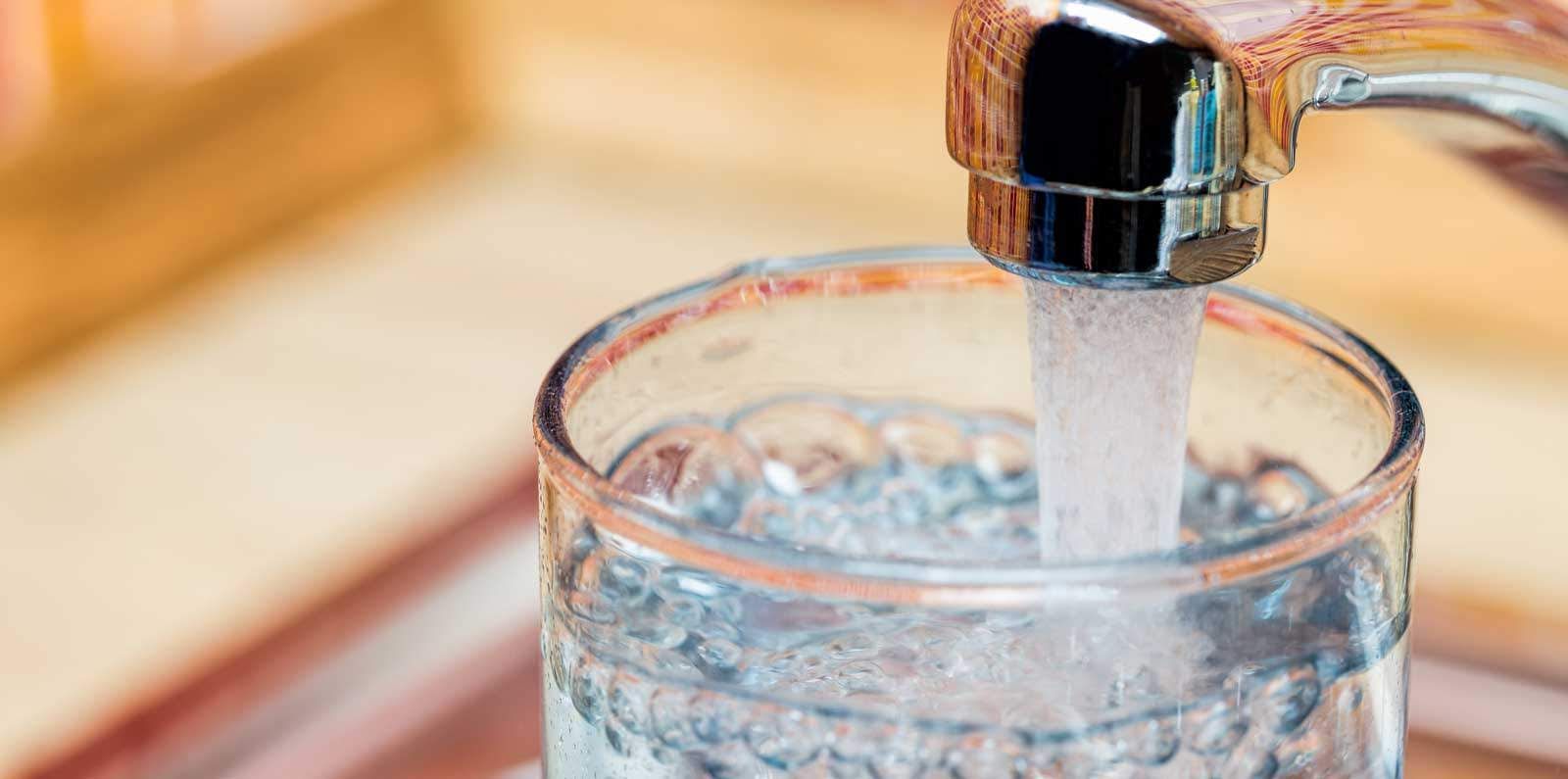
Clean water is essential. But not all water is safe to drink. Unfiltered water can carry hidden risks. These dangers often go unnoticed. But over time, they can lead to serious health problems. Unfiltered water may look clean. But it can still contain harmful substances. These include: Chlorine Lead PFAS (forever chemicals) Pesticides Bacteria Viruses Heavy metals Pharmaceutical residue These contaminants can come from pipes, runoff, or outdated infrastructure. Even city water is not always safe. A home filtration system can help. But without one, your family is at risk. You can check what in your municipal water here: https://www.ewg.org/tapwater/ Drinking unfiltered water daily can be dangerous. Let’s look at the long-term effects. 1. Cancer Risk Increases Many water contaminants are carcinogens. PFAS and chlorine byproducts are a serious concern. Over time, these can damage DNA. That leads to higher cancer risks, especially for: Bladder cancer Kidney cancer Liver cancer Even low exposure adds up. Filtering your water can lower this risk. 2. Heavy Metal Poisoning Lead and arsenic are common in old pipes and groundwater. These metals accumulate in the body. Long-term exposure affects: Brain function Kidney health Heart performance Children are especially at risk. Their brains are still developing. Lead in drinking water can cause learning issues and behavioral problems. A filtration system removes these threats. 3. Hormone Disruption Many chemicals in tap water act as endocrine disruptors. That means they interfere with hormones. PFAS and pesticides are major culprits. They can cause: Thyroid issues Weight gain Infertility Early puberty in kids Removing these contaminants with a home water filtration system is crucial, especially for pregnant women and young children. 4. Immune System Damage Unfiltered water can carry viruses and bacteria. These may not make you sick right away. But over time, they strain the immune system. Chronic exposure can cause: Frequent illness Digestive problems Autoimmune flare-ups Those with weak immune systems suffer most. Seniors and young children are especially vulnerable. 5. Gut Health Declines Chlorine is added to kill germs. But it also kills good bacteria in your gut. Long-term exposure can lead to: Bloating Food sensitivities Weakened immunity Filtered water protects your gut. A healthy gut boosts overall well-being. 6. Skin and Hair Issues Many contaminants affect the skin. Chlorine dries it out. Metals can cause rashes or breakouts. PFAS have been linked to acne and eczema. Long-term exposure may lead to: Premature aging Dry, brittle hair Skin inflammation Filtering your water helps from the inside out. It also improves your bathing water. 7. Kidney and Liver Stress These organs filter toxins. If your water is dirty, they work harder. Over time, this leads to: Fatigue Liver damage Kidney disease Clean water means less stress on vital organs. Filtration systems remove harmful toxins before they reach your body. 8. Reproductive Issues Heavy metals and PFAS affect fertility. They can harm reproductive organs and hormones. Women may have irregular cycles. Men may see lower sperm counts. Filtered water supports reproductive health. Water Filtration: A Smart Solution A home water filtration system removes most of these risks. It gives peace of mind. Clean water improves long-term health. It protects your family and your future. Our systems filter: Lead Chlorine PFAS Bacteria Pesticides Hard water minerals We customize every setup. Whether you’re on city water or a private well, we have solutions. Our filters improve both taste and safety. Why Filtered Water Matters Unfiltered water harms more than just your health. It damages appliances and plumbing. Hard water causes buildup. That reduces the life of: Water heaters Dishwashers Coffee machines Washing machines Filtering water saves money in the long run. It also helps the environment. You’ll use fewer plastic water bottles. Who Needs Water Filtration? Everyone. But especially: Families with children Expecting mothers Seniors People with health conditions Homes with old plumbing Residents near agriculture or industry Even if your water “passes” testing, it may not be safe. Legal limits do not always mean healthy. Long-Term Benefits of Clean Water Investing in a water filtration system offers: Better health Fewer doctor visits Safer cooking and drinking Clearer skin and stronger hair Peace of mind Our clients say they can taste the difference. They feel better too. Common Myths “My water looks fine.” Looks can be deceiving. Many toxins are invisible and tasteless. “Bottled water is safer.” Bottled water is not always filtered. And the plastic leaches chemicals. “It’s too expensive.” Filtration systems are affordable. Especially when you compare them to medical bills or replacing damaged appliances. Protect What Matters Don’t take risks with your water. Small steps today prevent major problems tomorrow. A quality home water filtration system can make all the difference. Ready to Take Action? We can help. Whether you need whole-home filtration, a reverse osmosis system, or a solution for PFAS removal, we have you covered. Our experts test your water and install the right system for your needs. Clean water is not a luxury. It’s a necessity. Let us help you make it a reality Contact us today to schedule your water test. Protect your health. Protect your family. Fix Any Water. Filter Every Drop.
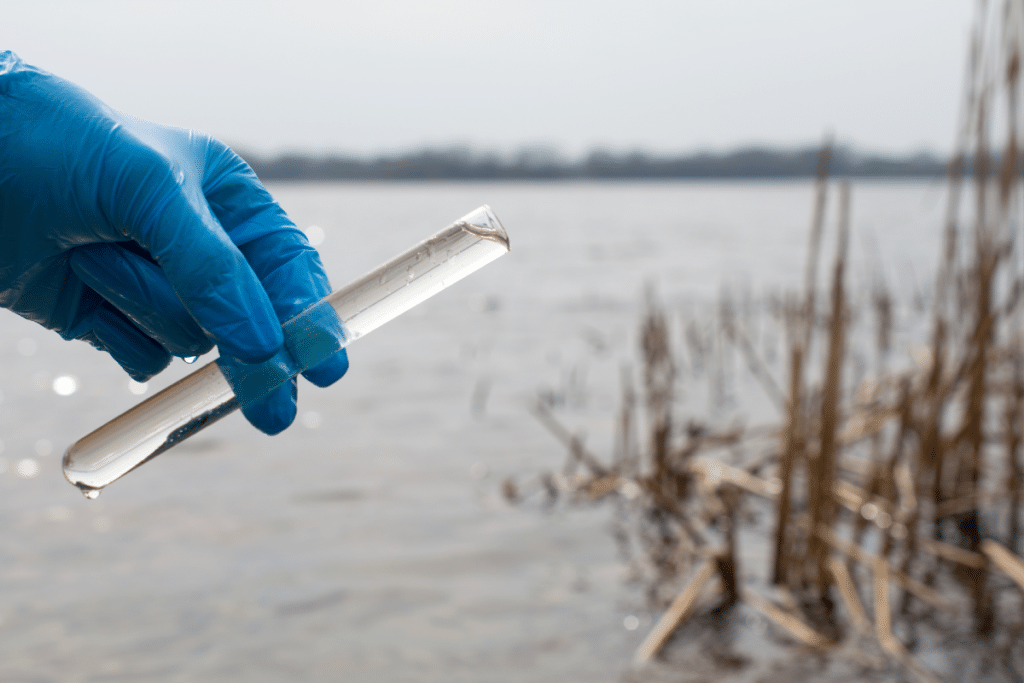
Clean water matters. The U.S. Environmental Protection Agency (EPA) just made that more clear than ever. In April 2024, the EPA finalized strict new limits on PFAS in drinking water. These rules are the first of their kind. They are long overdue. And they affect everyone — homes, businesses, and entire cities. But here's the catch: Municipal systems may take years to catch up. That’s where we come in. What Are PFAS? PFAS stands for Per- and Polyfluoroalkyl Substances. These are man-made chemicals. You’ll find them in everything from non-stick pans to waterproof gear. They’re also known as “forever chemicals.” Why? Because they don’t break down easily. They stay in water. They stay in your body. They’ve been linked to: Cancer Liver damage Thyroid problems Low birth weights Immune system issues And more What Did the EPA Just Do? The EPA set national legal limits on six PFAS chemicals. Two of them — PFOA and PFOS — must be non-detectable in public water systems. The rest — GenX, PFNA, PFHxS, and PFBS — now have strict thresholds. Water utilities now have to: Test for PFAS Notify the public Fix the problem This all sounds great. But there’s just one problem. Cities Can’t Fix This Overnight. Upgrading a city water system is expensive. It also takes time. Some communities might not be able to comply for years. In the meantime, families and businesses are still drinking PFAS-contaminated water . It’s not the utility’s fault. But it’s still your problem. So What Can You Do? You can take control of your water. Right now. Targeted filtration is the smart choice. It’s faster. It’s cheaper. And it actually works. We install advanced systems that remove PFAS at the point of entry (POE) or point of use (POU). That means: Whole-home solutions Under-sink systems Commercial-grade filtration for restaurants, hotels, and clinics We don’t wait for the government. We solve the problem at the source — your tap. What Filters Remove PFAS? Not all filters are created equal. A simple pitcher won’t cut it. To remove PFAS, you need one of the following: Activated carbon (GAC) systems Reverse osmosis (RO) Ion exchange systems Our team will recommend the right fit for your water and your budget. We test. We install. We service it. You get peace of mind. Is It Affordable? Yes. In fact, it’s way more affordable than people think. Whole-home PFAS filtration starts at just a few dollars per day. For businesses, we build custom systems that scale with your needs. We also offer: Low monthly payments Service plans Emergency installation options Lab testing for before-and-after results No guesswork. Just clean water. What About Businesses? PFAS doesn’t just hurt homes. It’s also bad for your bottom line. Restaurants, breweries, medical offices, and hotels all depend on clean water. PFAS in your water can: Hurt your reputation Trigger failed inspections Damage equipment Lose your customers Why Choose Us? We’ve been fixing water for years. And we don’t rely on cookie-cutter solutions. We help you stay compliant, safe, and profitable. We’re local. We’re licensed. And we care. We’ve already helped families, medical facilities, and businesses protect themselves from PFAS. And we stay ahead of EPA guidelines, so you don’t fall behind. The Bottom Line is that PFAS are real. The risks are real. And now, so are the federal rules. You can wait for your city to upgrade. Or you can protect your home or business today. We make it easy. We make it affordable. We make your water safe. Ready to Take Action? Call us to schedule your free water assessment . We’ll test your water. Show you the options. And help you choose the best plan for your needs. Your clean water is waiting. Safeway Water Technologies ~ Fix Any Water Safe. Smart. Filtered.

Water quality matters more than ever, especially in surgery centers. The AAMI ST108 standard is changing how facilities handle water. It sets the bar for what water used in sterile processing should look like. While it's not mandatory yet, it is being adopted fast. To stay ahead, surgery centers need to take action, and water filtration is the key. And we’re here to help you meet the ST108 standard — now and for the future. Exactly What Is the AAMI ST108 Protocol? ST108 is a guideline from AAMI . It defines the water quality required in surgery centers and hospitals. It focuses on the water used for cleaning, disinfection, and sterilization of surgical tools. ST108 includes strict limits. These cover things like: Conductivity Total Organic Carbon (TOC) Microorganisms Endotoxins Hardness and chlorine If your water doesn’t meet these standards, your instruments may not be clean. Worse, your patients may be at risk. Why Does ST108 Matter Now? Many inspectors are already using ST108 as a benchmark. So are accreditation agencies. They want to see that your water system is ready. Centers that fail water quality tests face shutdowns or citations. Even if ST108 isn’t enforced yet, non-compliance is still a red flag. ST108 helps prevent: Biofilm buildup in autoclaves Corrosion of surgical tools Cross-contamination Infections from improperly cleaned instruments That’s why forward-thinking surgery centers are upgrading now. They know clean water protects patients, staff, and their license. The Role of Water Filtration . To meet the AAMI ST108 protocol, filtration is essential. A basic carbon filter isn’t enough. You need a medical-grade system. That means: Reverse osmosis (RO) Deionization (DI) Carbon backwash Pre-treatment for scale and hardness Final polishing filters Each stage plays a role. The RO and DI remove minerals, metals, and organics. Carbon protects your membranes. Polishing filters remove endotoxins and microbes. We design water filtration systems that meet and exceed ST108. Whether you're building new or upgrading, we tailor it to your space and your workflow. Monitoring Is Just as Important Filtration isn't enough without monitoring. ST108 calls for routine testing and logging. You must check for: Resistivity or conductivity TOC (Total Organic Carbon) Endotoxins Microbial growth Our systems include easy-to-read gauges and digital meters. You get real-time updates. We also provide monthly testing with verified results. If something goes wrong, we know before it becomes a problem. That’s peace of mind. Routine Service for ST108 Compliance We don’t just install systems. We stay with you every step. With our monthly service agreement: We inspect all filtration equipment. We change filters and RO membranes. We refill salt and sanitize tanks. We test water quality and keep records. We offer emergency service when needed. Our ST108 service plan means you don’t have to worry. We handle the water. You focus on your patients. You get full documentation, ready for any inspection. How We Help Protect Your Investment Water treatment isn’t a one-time fix. Systems need care to stay within ST108 standards. We help you protect your investment with: Routine visits No hidden costs Warranty coverage Quick turnaround for service Dedicated support from trained techs And there’s no contract. Just a simple agreement. Cancel with 30 days’ notice if needed. We believe in earning your trust, month after month. What Happens If You Don’t Meet ST108? Ignoring ST108 can lead to serious problems. Even if it's not yet mandatory, here’s what could happen: A failed inspection or audit Equipment damage from poor water Higher maintenance costs Lost revenue during shutdowns Patient safety risks Legal or liability issues It costs more to fix water problems after the fact. Staying ahead is the smart move. Future-Proof Your Surgery Center Today ST108 is the future. It’s already here for many centers. If your facility doesn’t meet the standard, it’s time to act. We offer: Free water testing Custom system design Fast installation Expert support Compliance documentation Whether you’re upgrading or starting fresh, we’ve got you covered. We work with you, your biomedical team, and your inspectors to ensure everything runs smoothly. Why Choose Safeway Water Technologies ? We specialize in water treatment for surgery centers. We understand the challenges of sterile processing. Our ST108 compliance packages are: Efficient Affordable Tailored to your facility Backed by lab-tested performance We already help facilities meet the ST108 standard — and stay there. Let us do the same for you. Don’t wait for an inspection to find out your water system isn’t ready. Call us today for a free assessment. We’ll test your water, review your setup, and build a plan that fits your budget and exceeds AAMI ST108. Let’s protect your tools, your patients, and your reputation — with water that meets the highest standard.
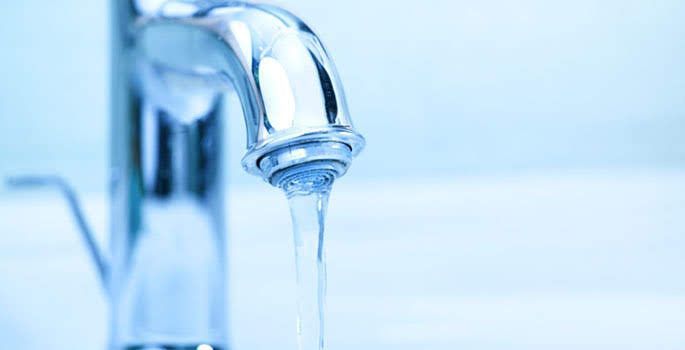
If you’re dealing with hard water, you’ve likely heard about salt-free water systems. These systems are often marketed as a healthier, low-maintenance alternative to traditional water softeners. But do they actually work? Let’s break it down and look at what salt-free systems do—and don’t do. A salt-free system is often called a water conditioner, not a softener. Traditional water softeners remove hardness minerals like calcium and magnesium. They use ion exchange and salt to do this. A salt-free water conditioner, however, doesn’t remove those minerals. Instead, it alters them. The goal is to prevent these minerals from sticking to pipes and appliances. This is done through a process called Template Assisted Crystallization (TAC) or similar technologies. This is why these systems are sometimes called “descalers.” But do Salt-Free Water Systems Soften Water? No. Technically, they do not soften water. Salt-free water systems do not remove hardness minerals. Water is still hard, according to testing. What they do is reduce scaling—the buildup of minerals on surfaces. This can help protect pipes, fixtures, and water heaters. But it won’t give you the silky feeling of softened water. What Are the Benefits? Salt-free systems offer several advantages: No salt bags. Great for those on low-sodium diets. No wastewater. Traditional systems flush salty water; salt-free systems don’t. Low maintenance. Some need cartridge changes only once a year. Environmentally friendly. No salt or brine to pollute groundwater. These are big wins for people who care about the planet and want simple solutions. What Are the Drawbacks? There are trade-offs. Salt-free systems don’t remove minerals. So, you may still see spots on dishes or buildup on glass. Laundry won’t feel as soft. Soap won’t lather the same. Your shower experience won’t change much. Also, if your water is very hard (over 10 grains per gallon), a salt-free system may not keep up. Do They Help Appliances? Yes, they can. Even though the minerals are still in the water, TAC and similar processes change their structure. This helps keep them from sticking to heating elements or plumbing. That means fewer breakdowns. It also means better performance from: Water heaters Coffee makers Dishwashers Washing machines So if you're trying to protect appliances from hard water, these systems help. Are Salt-Free Systems Good for the Whole House? Yes, if your main concern is scaling. Salt-free systems work well in homes with moderate hardness levels. They are often paired with carbon filters to improve taste and remove chlorine or odors. They are also great in areas where traditional softeners are banned, like parts of California and Arizona. Will I Notice a Difference? Yes, but not in every way. Your skin won’t feel softer. Your hair might not rinse any better. The water will still test hard. But your water heater may last longer. Your showerhead may not clog. You may not need to scrub your sink as often. If your main concern is appliance damage, then yes, salt-free systems help. Salt-Free Water Systems vs. Water Softeners Let’s compare: Feature Salt-Free System Salt-Based Softener Removes hardness ❌ No ✅ Yes Uses salt ❌ No ✅ Yes Reduces scale ✅ Yes ✅ Yes Maintenance Low Moderate Water feels soft ❌ No ✅ Yes Produces wastewater ❌ No ✅ Yes Sodium added to water ❌ No ✅ Yes Better for appliances ✅ Yes ✅ Yes Salt-free systems are best for scaling issues, not comfort or taste. Common Questions Q: Is a salt-free system good for drinking water? A: Yes. Since no salt is added, it’s safe and pleasant to drink. But you may still want a reverse osmosis system to remove other impurities. Q: Do I still need a filter? A: Yes. Salt-free systems don’t remove chlorine, sediment, or chemicals. We often recommend pairing with a carbon filter or whole-home filtration system. Q: Can I use one with well water? A: Maybe. It depends on your well water. If you have iron, sulfur, or bacteria, you’ll need pre-treatment. We can help test your water and make a plan. So, Do Salt-Free Systems Really Work? The answer is: They work, but not the way you might think. They don’t remove hardness. They don’t soften the water. But they do prevent scale. They do reduce maintenance on appliances. And they do save water and salt. If you want less buildup without the hassle of salt, a salt-free system may be right for you. What We Recommend At Safeway Water Technologies/Fix Any Water, we offer both salt-free and salt-based systems. We help homeowners and businesses choose the right fit. If your main goal is to: Stop scale Reduce maintenance Stay low-sodium Help the environment ...a salt-free water conditioner may be perfect. If your goal is: Softer skin and hair Spot-free dishes Luxurious water Full hard water removal ...then a traditional softener is better. In many cases, the best setup is a hybrid system. We custom-design water treatment for your exact needs. Final Thoughts Salt-free water systems do work—but not as softeners. They are water conditioners, great for scale prevention and appliance longevity. They’re not for everyone. But in the right home, they shine. Want to know if one will work for you? We offer free in-home water testing and consultation . No pressure, just answers.
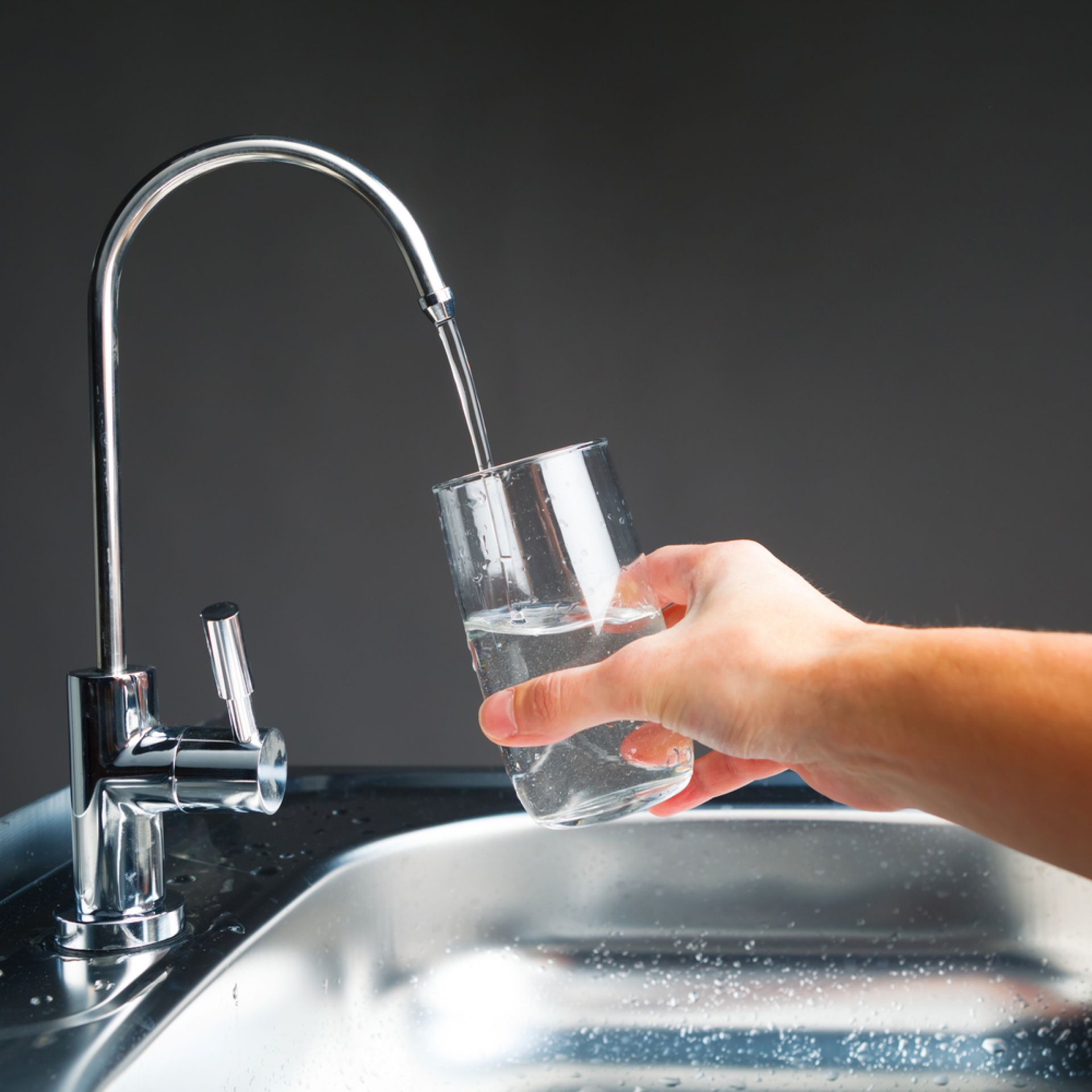
Is your water softener acting up? Does your water feel different lately? You're not alone. Many people ask us, “What’s wrong with my water softener?” Let’s walk through the most common signs and fixes. We’ll keep it simple and to the point. 1. Hard Water is Back: The #1 sign of trouble? Your water is hard again. You may notice: Soap doesn’t lather. Water spots on dishes. Clothes feel rough. Hair feels dry. White buildup on faucets. If your softener isn’t softening, something’s off. It could be low salt, a clogged resin bed, or a broken valve. 2. Salt Level is Too Low Check your salt tank. Is the salt below the halfway mark? If yes, refill it. No salt = no soft water. Water softeners need salt to work. It's what helps remove hardness minerals. If you see a crust or mushy mess inside the tank, that’s called a salt bridge or salt mush. Break it up with a broom handle. Flush the tank if needed. 3. Your Water Tastes Strange Soft water should taste clean. If your water tastes salty, metallic, or odd, the softener may be the cause. This could mean: The system is stuck in regen mode. The resin is exhausted. There’s too much salt in the tank. Flush the unit and call a technician if the taste doesn’t improve. 4. Low Water Pressure Water softeners can clog. That slows everything down. If you’ve noticed weaker flow at your sinks or showers, check the system. A clogged resin bed or filter could be to blame. Iron buildup can also restrict flow. Have your unit cleaned and the resin checked. Sometimes, a resin replacement is needed. 5. It's Stuck in Regeneration Water softeners have a regeneration cycle. This usually happens at night. It cleans the system and flushes out minerals. If the unit keeps cycling or gets stuck, something’s wrong. Common causes: A faulty timer. Broken valve motor. Stuck piston or seals. Your softener may be wasting water and salt. Or it might not be cleaning itself at all. 6. You Hear Strange Noises Clicking. Whirring. Gurgling. These are not normal sounds. A water softener should be quiet. Noises could mean: The motor is struggling. A valve is jammed. There’s air in the lines. Turn off the unit and inspect it. Call a technician if the noises persist. 7. Leaks Around the Softener Leaks are a red flag. Water pooling near your softener is never good. Check for: Cracked bypass valve. Loose fittings. Leaky brine tank. A small drip can become a big problem. Address leaks quickly to prevent water damage. 8. Softener Uses Too Much Salt Filling the salt tank more than once a month? That’s not normal. It could mean: The system is regenerating too often. The settings are off. The control valve is broken. Check the regeneration frequency. Most homes only need a regen every 5–7 days. Excess salt use = wasted money. 9. Resin Bed is Worn Out The resin bed does the heavy lifting. It grabs the hard minerals from your water. Over time, resin beads break down. Especially if there’s chlorine or iron in the water. Signs of bad resin: The softener doesn’t work, even with salt. Water feels gritty. Rusty stains appear. Most resin lasts 10–15 years. If yours is older, a replacement may be needed. 10. Your Softener is Old Like any appliance, softeners age. If yours is 10+ years old, it might be time for a new one. Older models: Use more salt and water. Are less efficient. Can break down more often. New models save money and are easier to manage. Ask us about high-efficiency options. What You Can Do Now Don’t panic. Most water softener issues are fixable. Here’s your simple checklist: Check the salt – Refill if low. Break up salt bridges – Use a broom handle. Inspect for leaks – Tighten any loose fittings. Listen for odd sounds – Silence = good. Watch for changes in water feel or taste – Trust your senses. Schedule a maintenance check – Catch issues early. Still not sure? Let us help. We offer free in-home water tests. We can inspect your softener and recommend next steps. Why It Matters Hard water can cause real damage. It ruins appliances. It stains sinks and tubs. It dries your skin and hair. A working water softener protects your home. It saves you money in the long run. And it makes your water feel great. Don’t wait until it breaks. Let’s fix the problem now. At Fix Any Water, we’ve seen it all. Our expert technicians service all brands and models. We offer repairs, resin replacements, service, salt delivery, and new installs. We’re fast. We’re local. And we know how to get your system running right again. Call us today. Or schedule your water softener checkup online . Stop guessing. Start softening. We’re here to help.
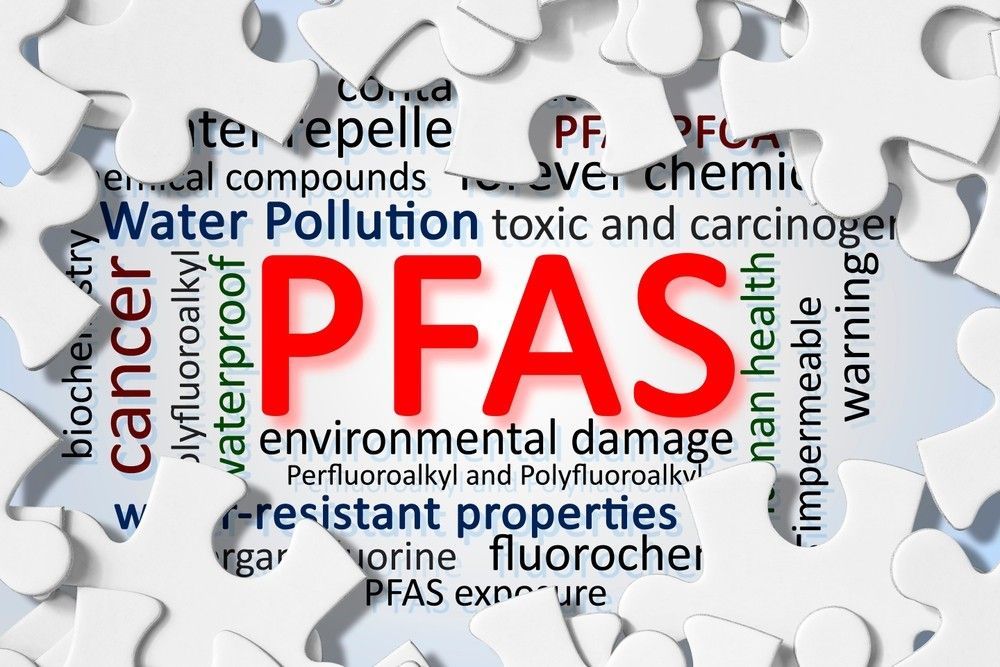
PFAS are dangerous. They’re called “forever chemicals” because they do not break down. These chemicals are found in water, air, and soil. And now, they’re in your tap water. What Are PFAS? PFAS stands for per- and polyfluoroalkyl substances. These are man-made chemicals used in products like: Non-stick cookware Firefighting foam Water-repellent fabrics Fast-food packaging They’re everywhere. And once they’re in your water, they stay. Why Are PFAS a Big Deal? PFAS in water can cause serious health problems. The EPA and medical researchers have linked PFAS exposure to: Cancer Liver damage Hormone disruption Immune system issues Low birth weight Even small amounts are dangerous over time. That’s why the EPA set new limits in 2024. The EPA has set strict limits for six PFAS chemicals. Municipal water systems are now required to test and treat for them. But these systems can’t always keep up. That means your home or business could still be at risk. How Do You Know If PFAS Are in Your Water? PFAS have no taste, smell, or color. You can’t see them. You need to test your water . It’s fast and affordable, and we test for multiple contaminants, including PFAS. If you already have a filtration system, we can test its performance. What Happens If PFAS Are Found? Don’t panic. PFAS can be removed. But not with a standard filter. You need advanced filtration for PFAS: Reverse Osmosis (RO) Activated Carbon Filters Ion Exchange Systems We specialize in PFAS removal systems and offer options for both homes and businesses . Municipal treatment upgrades can take years. Meanwhile, PFAS are still coming through the tap. The good news? You don’t need to wait. We install targeted PFAS filtration systems. These systems work at the point of entry (whole home or business) or point of use (like under your kitchen sink). They’re: Cost-effective Easy to maintain Proven to reduce PFAS We don’t believe in a one-size-fits-all system. We build the right solution for your property. Protect Your Family Your family deserves clean water. Our whole home PFAS filters and RO systems remove harmful chemicals. Home water filtration is now more important than ever. Especially if you live near military bases, airports, or industrial sites. We offer: Free in-home water testing Custom PFAS removal systems Maintenance and filter replacement services Protect Your Staff and Customers Bars, restaurants, coffee shops, and offices all depend on clean water. So do surgery centers and dental offices. PFAS can affect ice machines, coffee brewers, food prep, and sterilization equipment. That puts your customers—and your reputation—at risk. We install commercial PFAS removal systems that: Improve water quality Protect equipment Ensure compliance Reassure your guests and clients Your business runs better with clean, safe water. Why Choose Us? We’re experts in water filtration and PFAS removal. Our team has years of experience working with homes, restaurants, and medical centers. We don’t just install filters—we provide peace of mind. Our PFAS solutions are: Chemically engineered for results Designed for long-term protection Backed by professional service and support We use the latest technology in reverse osmosis systems, whole-house filtration, and activated carbon systems. And we tailor it to your specific water source and usage. Benefits of Filtering PFAS When you install a proper filtration system, you: Avoid health risks Improve taste and odor Extend appliance life Gain peace of mind Meet upcoming regulations Don’t wait for the city to fix the water. Take control now. Schedule a Free Water Test PFAS won’t go away on their own. But with the right system, you can remove them completely. Let us help you with a free water consultation. We’ll test your water, explain the results, and build a solution that fits your budget. We serve homes, restaurants, offices, hotels, surgery centers, and more. PFAS are a real threat . But with the right water filtration system, they don’t have to be a problem. We help you take action—without breaking the bank. Whether it’s your home or business, we’ve got you covered. Don’t guess—test. Then fix it right.

Serve Better Water. Protect Your Equipment. Impress Every Customer. Running a restaurant or bar is about the details—cleanliness, taste, and experience. That starts with your water. Water Matters in Every Sip and Every Dish Water is everywhere in your business. You use it for cooking, cleaning, ice, drinks, and coffee. If your water tastes bad, everything does. If your water leaves spots, customers notice. Bad water makes great food taste average. And it can ruin your equipment over time. Customers Notice They might not say it, but they know. Cloudy ice in a cocktail? Flat soda? Bitter coffee? Metallic aftertaste? These are signs of unfiltered water. And in a competitive market, even small details like this cost you repeat business. The Hidden Cost of Bad Water Unfiltered water causes real damage: Limescale builds up in dishwashers, water heaters, and ice machines. Minerals clog coffee machines and soda lines. Corrosion shortens the life of taps, boilers, and mixers. Stains appear on glassware and utensils. Health risks rise when contaminants like chlorine, sediment, or PFAS sneak in. Over time, these issues mean more repairs, replacements, and downtime. That hits your bottom line. Filtration Protects Your Brand Every plate. Every pint. Every glass. Water touches it all. The better your water, the better your brand reputation. Installing commercial-grade water filtration helps you: Improve taste Ensure consistency Prevent damage to appliances Reduce costly maintenance Show customers you care about quality Water Impacts Every Area of Your Operation 1. Beverages Customers expect their drinks to taste great. Water is the base for coffee, tea, soda, and cocktails. Filtration removes chemicals, metals, and chlorine that affect flavor. No more lemons to cover up the chlorine smell! 2. Ice Nobody wants cloudy or funky-tasting ice. A high-quality ice machine filter ensures crystal-clear cubes. Customers notice the difference immediately. No one wants to pay top dollar for a cocktail with cloudy, dirty ice! 3. Cooking and Baking Chefs use water to boil, steam, rinse, and mix. Bad water can alter the flavor and appearance of your dishes. Chlorine, hardness, and iron affect pasta, rice, dough, and more. 4. Dishwashing Hard water leads to spots on glasses and streaks on plates. Making even clean dishes look dirty. Filtration keeps your dishware sparkling, without extra polishing. 5. E quipment Protection Expensive tools like espresso machines, water heaters , steam ovens, and combi ovens need protection. Hard water shortens their lifespan and lowers efficiency. A targeted filtration system prevents scale buildup and protects your investment. 6. Cleanliness and Safety Sediment and organic matter in water can cause bacteria to grow in lines and machines, putting food safety and cleanliness at risk. Filtration helps meet health code standards and avoid violations. At Fix Any Water / Safeway Water Technologies, we know your needs are unique. That’s why we offer Free Water Testing. We come to you. We test your water on-site. Look at your equipment. We explain what’s working, what's not, what's in your water and what you need. We don’t sell cookie-cutter systems. We match the right filter to your water. Whether you need reverse osmosis, softeners, sediment filters, or carbon systems, we design them right. Our trained technicians install everything professionally. We make sure it works before we leave. We service what we install. We handle filter changes, inspections, and emergency service. You focus on your business—we’ll handle your water. Health departments require clean water. So do beverage equipment warranties. We help you stay compliant and protect your equipment warranties. The Benefits of Clean, Filtered Water Better tasting drinks Cleaner dishes Happier guests Lower equipment repair bills Longer life for expensive appliances Higher online reviews Safer food prep Peace of mind We Work With All Water Sources. Whether you’re on city water or well water, we can help. Chlorine? PFAS? Hardness? Iron? Sulfur smell? We’ve seen it all—and fixed it all. Don’t Wait Until Water Costs You Customers Water is easy to overlook—until it causes a problem. The cost of not filtering your water is high. Equipment repairs. Negative reviews. Bad taste. Unhappy guests. Instead, invest in quality now and enjoy peace of mind. Our systems pay for themselves by protecting your kitchen, boosting your flavor, and improving your reputation. Get a free on-site water test today. Let us show you what’s in your water—and how to fix it. 📞 Call us or 📩 contact us online to schedule your visit. Clean water isn’t a luxury. It’s a must-have for every successful restaurant or bar.

There are several signs that your tap water may be unsafe or contaminated: Foul odor or bad taste (like bleach or metal) Cloudy or discolored water Skin irritation after bathing White scale buildup on faucets and appliances Stomach issues, especially in kids or elderly family members Even if none of these signs are present, contaminants could still be there—you can't see PFAS , arsenic, chlorine, or lead with the naked eye. How to Test Your Water in Port St. Lucie The best first step is to get a professional water test. At Fix Any Water, we offer: Free in-home water testing Certified lab analysis for detailed results Expert consultation to explain what the results mean and what to do next How Fix Any Water Protects Your Home and Family We customize water treatment systems to target exactly what’s in your water. Some of our most popular solutions include: 🛡️ Whole Home Water Filtration Removes chlorine, sediment, PFAS, arsenic, and more Protects every faucet, appliance, and shower 💧 Reverse Osmosis Drinking Systems Pure, clean drinking water at your kitchen sink Removes up to 99% of contaminants including PFAS, arsenic, and lead 💦 Water Softeners Eliminate hard water damage to plumbing and appliances Softer skin, better tasting water, and longer appliance life Real Reviews from Port St. Lucie Homeowners “I had no idea how much chlorine was in our water until Fix Any Water showed me. Now, it tastes amazing and our skin feels better too!” – J. Rodriguez “We had our baby last year and wanted to be safe. Their system gave us peace of mind.” – L. Thompson Take Action: Protect Your Water Today Don’t wait until there’s a boil notice or a water advisory. Be proactive. ✅ Get a free water test ✅ See what’s really in your tap water ✅ Get expert recommendations, no pressure 📞 Call Now or Book Online 👉 Schedule your free test online today Let’s make sure your family drinks only the cleanest, safest water possible.

Water is life. We drink it. We bathe in it. We cook with it. But is today’s water safer than it was in the 1970s? Let’s look back. The 1970s were a turning point. America was waking up to pollution. Factories dumped waste into rivers. Oil spills hit the headlines. Acid rain made news. And drinking water? It wasn’t as safe as people thought. The Safe Drinking Water Act was passed in 1974. This was a major law that gave the government power. The EPA (Environmental Protection Agency) could now set rules. Limits were placed on dangerous contaminants. Before that, water safety was a gamble. We thought all was good. Back then, lead pipes were common. Many homes still had them. Lead is dangerous. Especially for children. In 1970, most people didn’t know that. Now we do. Chlorine was used more heavily. It kills bacteria. But it also creates byproducts. Some byproducts may cause cancer. We didn’t know that in the '70s, but we monitor for it today . Fluoride was added to water. In the 1970s, this was seen as a win. Tooth decay dropped. But now, the debate continues. Some studies suggest fluoride may be harmful to ingest. Especially to young children. Today, fluoride levels are more strictly managed. Another concern: agricultural runoff. Pesticides and fertilizers were used freely. These seeped into water supplies. Nitrates and phosphates caused problems. In the 1970s, there were few rules. Today, we test for those. But problems still happen. Fast forward to now. Is water safer? In many ways, yes. We have better testing. More rules. Better filtration. More public awareness. We can test for over 90 contaminants now. That includes metals, bacteria, chemicals, and radiation. In the 1970s, we tested for far fewer. Today’s technology can detect trace amounts. We can find problems faster. And we can fix them. However, new problems have emerged. PFAS is a big one. They’re called “forever chemicals.” They don’t break down. They’ve been used in Teflon, firefighting foam, and more. Now, they’re in water systems. We didn’t know about PFAS in the 1970s. Now, it’s a national concern. Microplastics are another issue. Tiny plastic pieces are everywhere. In rivers. In oceans. Even in bottled water. They didn’t exist in the 1970s like they do now. Today, they’re a growing concern. Then there are pharmaceuticals. People flush medications. Or they pass through our bodies. Water systems weren’t designed to filter them. So small traces stay in our water. The 1970s didn’t worry about this. Now, scientists study it. Let’s talk infrastructure. Many water pipes are old. Some date back to the early 1900s. Others were built in the 1970s. Lead, copper, iron – they corrode. Leaks and contamination happen. Flint, Michigan, showed us this. Modern water is safer if the infrastructure is maintained. But many systems are still outdated. Boil water notices happen more often. Why? Because detection is better. We catch bacteria faster. We warn the public sooner. In the 1970s, you might not have been warned at all. Now, alerts are instant. Private wells are still unregulated. They were common in the 1970s. Still common now. But today, well owners have access to better testing. They can test for bacteria, metals, and nitrates. Companies like Fix Any Water can help. Rainwater collection is on the rise. In the 1970s, it was rare. Now, it’s part of sustainability efforts. But it must be filtered. Today’s technology makes it safer. UV lights, filters, and ozone systems help. Bottled water didn’t take off until the late 1970s. Now it’s a huge industry. But bottled water isn’t always better. Sometimes, it’s just filtered tap water. Plastic bottles can leach chemicals. Especially if left in the sun. Also, bottled water isn’t held to the same standards as tap water. Surprising, but true. Home water systems have improved. In the 1970s, few homes had filters. Now, reverse osmosis, carbon filters, and softeners are common. People want control. They want peace of mind. So is water safer now? Yes – and no. It’s better regulated. Better tested. But also under new threats. Old systems, new chemicals, and global pollution complicate things. What can you do? Test your water. Every home is different. Public water changes. Private wells need regular checks. Install the right filtration. Not all filters are equal. Know what’s in your water first. Maintain your system. Filters wear out. Replace them on schedule. Stay informed. Watch for news about boil water notices, recalls, and contamination alerts. Know your pipes. Homes built before 1986 may have lead plumbing. Replace old pipes if you can. Water is still life. And it should still be safe. We’ve come a long way since the 1970s. But we must keep improving. At Fix Any Water, we stay ahead of the curve. We test, treat, and maintain water systems for homes and businesses. We offer systems that remove chlorine, lead, PFAS, microplastics, and more. We don’t rely on chemicals. We offer solutions that protect your family. From the kitchen sink to the shower. From coffee shops to surgery centers. Your water should be better than it was in the '70s. And with our help, it will be.
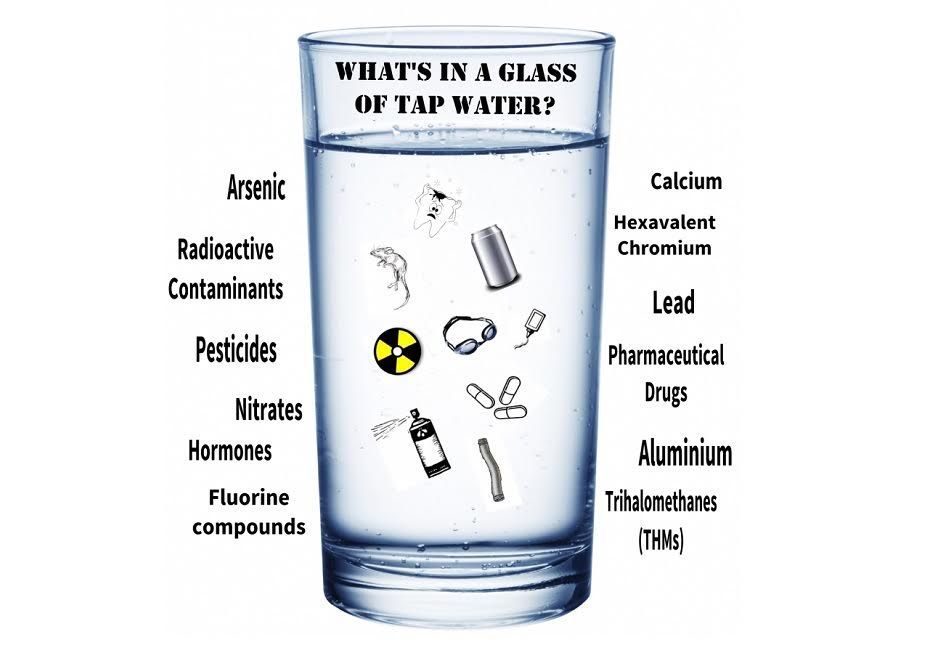
The water treatment industry isn't without its challenges. From changing water chemistry to shifting regulations, companies like ours must stay ahead of the game every single day. At Safeway Water Technologies , we don’t just acknowledge the problems—we solve them! Here’s how we rise above the five most common issues water treatment companies face and why that matters for you, our customers. 1. Inconsistent Water Quality Across Regions The Problem: No two water sources are exactly alike. Whether it’s well water in a rural area or city water full of disinfectants, or a large surgery center in need of meeting FDA guidelines, every home and business has unique needs. Our Solution: We start every relationship with a free, in-depth water test and site inspection. From there, we customize every system—whether it’s a softener, carbon filter, UV, DI, reverse osmosis, pressure tanks, chemical feed system, or something else. Our techs are trained to adapt and configure solutions that are right for your exact conditions. That means fewer callbacks, longer-lasting systems, and better water—guaranteed. 2. Lack of Proper Customer Education The Problem: Many people don’t fully understand their water problems or how the systems work. That can lead to confusion, neglect of maintenance, or even buyer’s remorse. Our Solution: Education is a core part of our process. We take time to explain what’s in your water, why it matters, and how our system will fix it—in plain language. We give you clear maintenance instructions, and our team follows up with friendly reminders and check-ins. We even offer service plans. Our goal? Empowered, confident customers who know they made the right choice. 3. Supply Chain and Equipment Delays The Problem: It’s no secret: The last few years have been tough on supply chains. Valves, tanks, and specialty filters don’t always arrive when promised. Our Solution: We’ve built strong partnerships with multiple suppliers and keep critical components in stock at our facilities. We also offer temporary solutions to avoid downtime. Our scheduling team is proactive and honest—we’d rather give you a realistic timeline than overpromise and underdeliver. 4. Recruiting and Retaining Skilled Technicians The Problem: There’s a nationwide shortage of skilled tradespeople, and water treatment techs need to be both mechanically savvy and good with people. Our Solution: We hire smart, train thoroughly, and invest in our team. Every technician goes through hands-on technical training, customer service coaching, and ongoing education on the latest products and codes. We also treat our people right—with competitive pay, benefits, and a supportive team culture. When you meet a Safeway tech, you’re meeting someone who cares. 5. Staying Compliant with Evolving Regulations The Problem: From new PFAS limits to the AAMI ST108 standard for surgery centers, regulations are always changing—and falling behind can be risky. Our Solution: We stay ahead of the curve by constantly monitoring updates from the EPA, local municipalities, and industry groups. We’ve already helped dozens of clients upgrade to meet AAMI ST108 compliance, and we offer specialized systems to tackle PFAS, lead, chlorine, and other regulated contaminants. We handle the technical details so you can stay focused on your business or family. Water treatment may be a complex industry, but it doesn’t have to be complicated for the customer. At Safeway Water Technologies, we’ve built a company that anticipates problems, adapts quickly, and always puts service first. That’s how we overcome industry-wide challenges—and that’s why our customers stay with us for the long haul. Have questions about your water? Give us a call at 866-928-3795 to schedule your no-charge water test today. We’re ready to help.
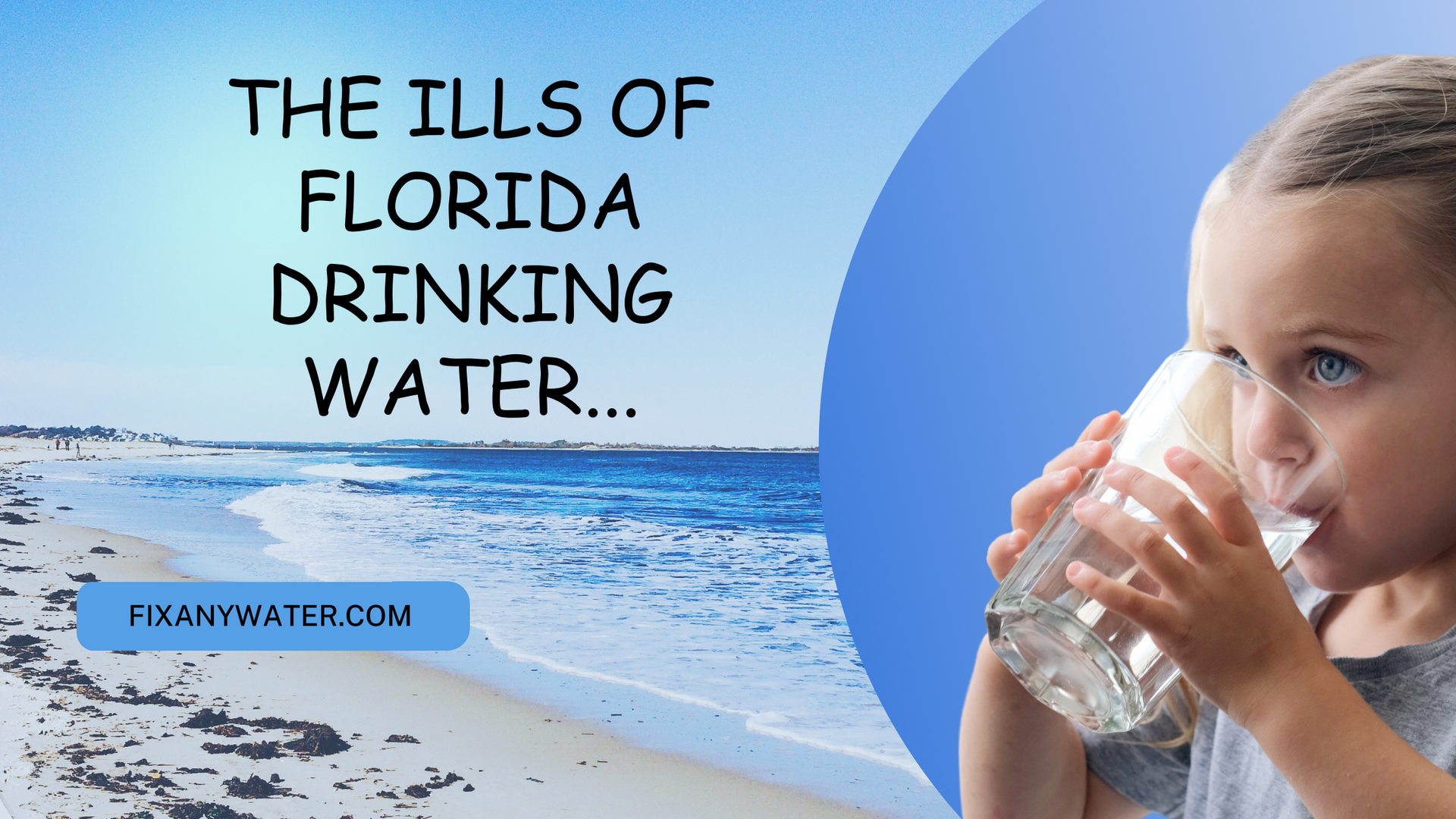
Florida is beautiful. The sun is warm. The beaches are stunning. But the drinking water? That’s another story. At Safeway Water Technologies , we see the truth every day. The water may look clear, but it often carries hidden dangers. And most people don’t realize what they’re really drinking. Let’s explore what’s wrong with Florida’s water—and how we can help you fix it. 1. Too Much Chlorine Florida water is heavily chlorinated. Cities use chlorine to kill germs. That’s important. However, excessive chlorine can be harmful. It dries your skin. It makes your water taste bad. And it smells like a pool. Chlorine may also react with other substances in the water to form harmful byproducts. At Safeway Water Technologies, we install systems that remove chlorine from your water before it ever touches your skin or enters your glass. 2. PFAS – Forever Chemicals PFAS are toxic. These chemicals never break down. They’re found in non-stick pans, firefighting foam, and industrial waste. They’ve also been found in Florida’s drinking water—especially near military sites and factories. These chemicals are linked to cancer, hormone issues, and immune problems. Our advanced carbon and reverse osmosis systems target and reduce PFAS levels. So your family is safe from chemicals you can’t see or taste. 3. Hard Water = Hard Life Florida has some of the hardest water in the country. That means high mineral content. Hard water damages pipes. It shortens appliance life. It stains dishes. It ruins water heaters and it dries out your hair and skin. Safeway Water Technologies installs top-tier water softeners. They remove those harsh minerals. Your home stays clean. Your plumbing stays healthy. Your skin feels softer. 4. Pesticides and Fertilizer Runoff Florida's agriculture plays a big role in our economy. But it affects our water, too. Fertilizers and pesticides seep into lakes, rivers, and aquifers. These chemicals then show up in your tap water. You can’t boil them out. Over time, they can cause serious health issues. Our systems filter out nitrates, herbicides, and other dangerous runoff. Clean water means peace of mind. 5. Toxic Algae Algae blooms are common in Florida. Some produce toxins that can damage the liver or brain. Even when water looks clear, trace toxins may remain. Safeway Water Technologies offers advanced filtration and UV disinfection options. These eliminate microorganisms without adding chemicals to your water. 6. Old Pipes, New Problems Many homes and buildings in Florida still use old plumbing. These pipes corrode. They rust. Lead and other heavy metals can leach into your water. Our whole-home filtration systems stop sediment, rust, and metal before it gets into your body. 7. Saltwater Intrusion Rising sea levels cause saltwater to seep into freshwater wells. This is a growing problem across coastal Florida. Saltwater tastes bad. It damages plumbing. It ruins appliances. Safeway Water Technologies has solutions. Our filtration systems can handle these changes, giving you fresh, clean water in any season. What Can You Do? You don’t have to live with bad water. And you don’t have to figure it out alone. Here’s how Safeway Water Technologies / Fix Any Water can help. Step 1: Get a Free Water Test - We’ll test your water at no charge. We check for chlorine, PFAS, hardness, metals, and more. You’ll know exactly what’s in your water—and what needs to be done. No guesswork. Just clear answers. Step 2: Choose the Right System - We don’t believe in cookie-cutter solutions. We build custom systems for each home and business. Whether you need softening, filtration, or reverse osmosis—we design what fits your exact water issues. Step 3: Protect Your Family and Your Property - Our systems stop chlorine, PFAS, sediment, metals, and bacteria. Your water will taste better. Your skin will feel better. And your appliances will last longer. We use only proven technology. Installed by experienced pros. Backed by full service and support. Step 4: Stay Safe With Ongoing Service - Water quality changes. Filters wear out. Systems need love. That’s why we offer regular maintenance plans. We keep your water safe—month after month, year after year. Why Choose Safeway Water Technologies? We’re local. We know Florida water. We test before we treat. We custom build every system. We service what we sell. We care about your family’s health. From homes to businesses to medical centers—we’ve got the tools and the team to protect your water. Florida is paradise—but the water isn’t perfect. Chlorine. PFAS. Hardness. Pesticides. Salt. Rust. Algae. The list goes on. But with Safeway Water Technologies, you don’t have to worry. We bring clean, safe, and refreshing water straight to your tap. Protect your home. Protect your health. Start with a free test today. Call Safeway Water Technologies or visit us at Safewaywatertechnologies.com to schedule. Because clean water isn’t a luxury. It’s a necessity.
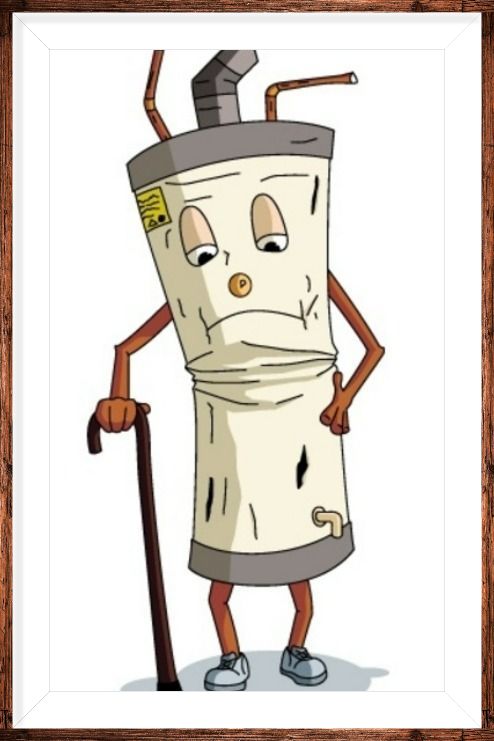
How Hard Water Damages Hot Water Heaters—And How We Fix It Hard water causes real problems. It harms water heaters in homes and businesses. Most people don’t see it happening. But the damage is constant. And it costs you money. What Is Hard Water? Hard water contains minerals. Mainly calcium and magnesium. These minerals are natural b ut they don’t belong in your water heater. When water heats up, minerals solidify. They form scale inside the tank. That scale sticks to heating elements and tank walls. Scale buildup is like plaque. It coats everything inside the water heater. That layer slows down heat transfer. So the heater works harder. And it uses more energy. Your energy bill goes up. The water doesn’t heat as fast. And the unit wears out early. Hard Water in Residential Hot Water Heaters Home water heaters suffer silently. The scale keeps growing with each shower or wash. Over time, it takes longer to heat water. The tank starts to make popping or rumbling sounds. That’s scale breaking loose and bouncing around. Eventually, the heater fails. You’re left with cold water. And a big repair bill. Hard Water in Commercial Water Heaters Businesses have it worse. Restaurants, laundromats, hotels, and gyms rely on hot water. Hard water scale builds even faster under heavy use. It damages large commercial units. The scale coats heat exchangers, burners, and tanks. It reduces efficiency and capacity. Sometimes the system shuts down. When that happens, business stops. No hot water, no service. You might pay thousands to replace it. And thousands more in lost business. Signs of Hard Water Damage Here’s what to watch for: Strange noises from your water heater Water takes too long to get hot Hot water runs out too fast Higher utility bills Cloudy tap water White crust around faucets and drains These are warning signs. Don’t ignore them. Our Solution: Water Softening At Safeway Water Technologies , we fix this. Our water softeners remove the minerals that cause scale. No calcium. No magnesium. Just clean, soft water. With soft water, scale doesn’t form. Your water heater runs like new. It lasts longer. Heats faster. And saves you money. Whole-Home Water Softeners For homeowners, we install whole-home softeners. They treat all the water before it enters your pipes. That protects every appliance. Including your water heater, dishwasher, and washing machine. Soft water means fewer repairs. And a longer life for your equipment. Commercial Water Softeners For businesses, we go bigger. We design custom systems for your volume and flow needs. From small offices to big hotels, we’ve got it covered. Our commercial water softeners are built for heavy use. They keep your equipment clean and efficient. And your hot water reliable. Preventive Maintenance Plans We offer service plans too. Regular maintenance keeps your system running smoothly. We check the softener. Deliver salt. Repair systems. Test water hardness. And stop problems before they start. It’s simple. And it saves you a lot over time. Why Choose Us? We know water. We know how hard water affects appliances. And we know how to prevent water damage. Our systems are tested and proven. We serve both homes and businesses. From simple softeners to full water management plans, we do it all With Safeway Water Technologies, you get: Expert installation Reliable equipment Honest advice Fast service Long-term support We don’t just install systems. We protect your property. And your peace of mind. Don’t Wait Until It Breaks Hard water damage is sneaky. By the time you notice, it may be too late. Don’t wait for your hot water heater to fail. Call us now. We’ll test your water for free. We’ll show you what’s in it. And we’ll build a solution just for you.

In healthcare, water plays a key role in cleaning, rinsing, and sterilizing instruments. That’s why AAMI released ST108 . It’s a new standard for water quality in medical device processing. While not required yet, it’s strongly recommended. Surgery centers should pay close attention. ST108 stands for "Water for the Processing of Medical Devices." It was approved in August 2023. This new standard replaces AAMI TIR34, which was a technical report. ST108 is more formal. It lays out specific water quality guidelines. But here’s the key: ST108 is not yet required. However, it is widely recommended for surgery centers that want to stay ahead. Surgery centers process critical and semi-critical reusable instruments daily. These tools must be cleaned properly. Sterilization only works if the water used is pure and consistent. Poor water quality can: Leave spots or film on tools Cause equipment corrosion Interfere with sterilization Lead to infection risks ST108 offers guidance to prevent these problems. It helps protect patients, staff, and instruments. While ST108 isn’t enforced by law, accreditation agencies and surveyors are beginning to look for signs of compliance. It’s a sign of excellence. It shows a center is going above the minimum. Centers that follow ST108 stand out. They reduce risks, increase trust, and make inspections easier. What ST108 Recommends The standard defines three water types: Utility Water – used for flushing and cleaning Critical Water – used for final rinses and steam Steam – used in sterilizers Each has quality benchmarks for: pH Conductivity Hardness Organic and inorganic contaminants Microbial levels Endotoxins Meeting these levels means installing or upgrading water systems. That might include: Whole-home softeners Reverse osmosis units Ultraviolet disinfection Carbon backwashing filters UV Lights Sediment filters Booster pumps or other equipment Safeway Water Technologies specializes in water filtration and water treatment. We currently serve many surgery centers, medical clinics, and hospitals. We know the ST108 standard inside and out. We can help by: Testing your current water Reviewing your existing system Recommending upgrades Installing new filtration systems Offering preventive maintenance Providing documentation You don’t need to figure this out alone. We’ll walk you through it. Since ST108 isn’t required, some centers may wait. But waiting has risks. Tools may not be cleaned properly Biofilm can buildup in pipes or filters Auditors may ask about ST108 readiness Long-term costs may rise from equipment damage You may miss a chance to improve patient safety Even though it’s voluntary, following ST108 is a smart business and clinical decision. Compliance doesn’t happen overnight. It takes time and planning. Here’s what you can do now: ✅ Form a water management team ✅ Test your water sources ✅ Review your treatment systems ✅ Read the ST108 standard ✅ Get help from water experts ✅ Document improvements Even small steps matter. They show intent. They show awareness. They show leadership. While ST108 isn’t a regulation, auditors often look for best practices. Accrediting bodies such as AAAHC and The Joint Commission care about water quality. They may reference ST108 when evaluating sterilization processes. Centers that follow it may have smoother inspections. They’ll also have clearer documentation and fewer corrective actions. We Make ST108 Easy Our company offers turnkey solutions: Custom water treatment plans Installation of softeners, filters, and RO systems Regular service and performance checks Logbooks and testing results for inspections We focus on simplicity. Our goal is to keep your surgery center running smoothly. You handle patients. We handle the water. Long-Term Benefits of ST108 Even if not required, ST108 has BIG benefits: Cleaner instruments Less downtime Better sterilization results Fewer repairs on washers or sterilizers Happier inspectors Safer outcomes That’s a win for everyone. VA and Federal Attention The VA is already encouraging water management in line with ST108. The VHA Directive 1116(2), effective in January 2024, stresses water quality for device reprocessing. It mirrors many ST108 ideas. Other agencies may follow soon. This shows where things are heading. ST108 may become mandatory in the future. Starting now gives your center a head start. Be Proactive, Not Reactive AAMI ST108 is not law. But it is smart. It protects patients, boosts compliance, and shows leadership. For surgery centers, it’s a chance to rise above the minimum. The best centers don’t wait for rules. They prepare early. They improve constantly. They value water quality as part of patient safety. If you're ready to explore ST108, we’re ready to help. We’ll guide you, test your water, recommend improvements, and support your team with worry-free service. Let’s make clean, compliant water one less thing for your staff to worry about. Contact Safeway Water Technologies here to start your water journey.

Droughts are becoming increasingly common. When they happen, water supplies shrink, which can lead to serious problems for drinking water. A drought is a long period without rain. It causes lakes, rivers, and reservoirs to dry up. This could be a little or a lot. When water sources shrink, the quality of the water changes. Droughts impact drinking water in many ways. Some problems are obvious, and others are hidden but just as harmful. Lower Water Levels Droughts cause water levels to drop. Many towns and cities rely on surface water from lakes and rivers. When these sources dry up, there is less water to go around. Groundwater levels also fall. Wells can run dry. People who depend on private wells may struggle to find water. Higher Concentration of Contaminants When water levels drop, contaminants become more concentrated. Pollutants, minerals, and bacteria build up in the remaining water. This can make water unsafe to drink. It may also cause taste and odor problems. Common Water Problems During a Drought Droughts can introduce many new risks to drinking water. Some of the most common include: Increased Sediment in Water When reservoirs shrink, more dirt and debris mix into the water. This can cause water to be cloudy and harder to treat. Sediment can also damage pipes and appliances. It may shorten the life of water filters as well. Higher Levels of Bacteria Low water flow means warmer water. Bacteria thrive in warm conditions. This can be dangerous. Harmful microbes like E. coli can grow easily in warmer waters. This raises the risk of waterborne illnesses. More Harmful Chemicals When water is scarce, pollution becomes a bigger problem. Industrial waste, pesticides, and fertilizers become more concentrated. Nitrate levels often rise. This is dangerous for infants and people with health conditions. Increased Salt Content In coastal areas, droughts can lead to saltwater intrusion. When freshwater supplies shrink, salty ocean water seeps into wells. This makes drinking water salty and undrinkable. It can also corrode pipes and plumbing fixtures. How Droughts Affect Water Treatment Plants Water treatment plants work hard to keep water safe. But during a drought, their job becomes harder. Low water levels mean more contaminants. This forces treatment plants to use more chemicals. Extra treatment can change the taste and smell of water. Some people notice a more chlorine-like odor. Others may taste earthy or metallic flavors as well. Struggles with Supply Some treatment plants rely on large reservoirs. If these dry up, they must find new sources. Switching water sources can introduce new contaminants. It may also require new filtration methods. Water Restrictions During a drought, many areas limit water use. You may not be able to water your lawn or wash your car. Sometimes, restrictions affect drinking water, too. People may need to boil water before drinking it. In extreme cases, bottled water or filtration may be the only option. If you live in a drought-prone area, preparation is key. Install a Home Filtration System A water filtration system removes many contaminants. It can improve taste, remove sediment, and eliminate harmful bacteria. Reverse osmosis is one of the best options. It removes salts, nitrates, and chemicals. A whole-home filtration system can protect your entire water supply. Use Water Softeners if Needed If drought conditions cause high mineral levels, a water softener can help. It removes hardness and prevents buildup in pipes and appliances. Soft water can also extend the life of your water heater and dishwasher. Test Your Water Regularly Drought conditions change water quality. Regular water testing helps you stay informed. Test for bacteria, nitrates, and heavy metals. If you notice changes in taste or smell, test your water immediately. Store Emergency Water In severe droughts, water shortages can happen. Keep an emergency supply of clean drinking water. Store at least one gallon per person per day. Keep enough for at least three days. What Happens When a Drought Ends? Rain may return, but the effects of a drought linger. When rain finally comes, it can wash dirt and debris into water supplies. Flooding can carry pesticides and sewage into rivers and lakes. This can cause temporary water quality problems. Long droughts can also cause cracks in pipes. When water starts flowing again, leaks and breaks may appear. This can lead to boil water advisories or water shortages. Why Water Filtration Matters No matter the weather, clean drinking water is essential. A water filtration system gives peace of mind. It removes harmful contaminants and improves water taste. In drought conditions, it provides an extra layer of protection. Droughts can have a big impact on drinking water. They lower water levels, increase pollution, and make treatment more difficult. If you live in a drought-prone area, take the proper steps to protect your water. Install a filtration system, test your water, and store an emergency supply. Clean water is a necessity. With the right precautions, you can keep your drinking water safe—no matter the conditions.
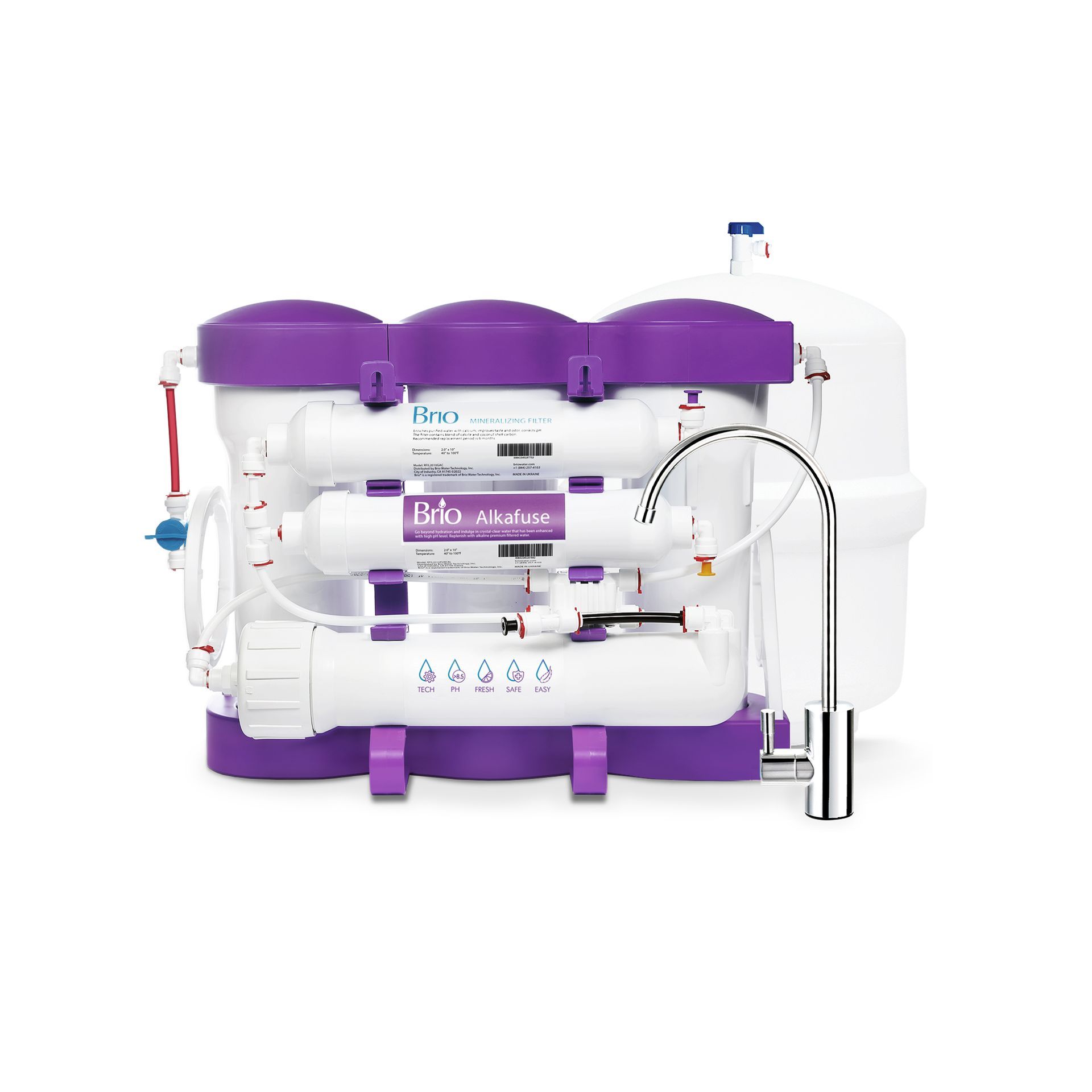
Water is essential. But is your water clean and safe? Many homeowners assume their water is safe, especially if it appears clear. Unfortunately, this is not always true. Why Water Quality Matters Clean water is important for health. Contaminated water can cause sickness. It can also damage appliances. Hard water leaves stains and buildup. Chemicals like chlorine affect taste and smell. A water filter can help. But do you need one? Let’s explore the signs. Signs You Need a Water Filter Not sure if you need a filter? Watch for these warning signs: 1. Bad Taste or Odor Does your water taste strange? Does it smell like chlorine or rotten eggs? These are signs of contamination. A water filter can improve taste and remove odors. 2. Cloudy or Discolored Water Clean water should be clear. If your water looks cloudy, brown, or yellow, it may contain sediments, rust, or minerals. A water filtration system removes these impurities. 3. Hard Water Buildup White spots on dishes? Scale buildup on faucets? Soap that won’t lather? These are signs of hard water. A water softener can fix this issue. 4. Skin and Hair Problems Hard water makes skin dry and itchy. It also causes brittle hair. A whole-house filtration system can soften water and improve your skin and hair. 5. Lead or Other Contaminants Older pipes can contain lead. Some areas have high levels of PFAS, nitrates, and other pollutants. A reverse osmosis system removes dangerous contaminants. 6. Frequent Plumbing Issues Mineral buildup can clog pipes. Over time, this leads to costly repairs. A water filter can prevent damage to your plumbing system. 7. Well Water Concerns Do you use well water? It may contain bacteria, iron, or sulfur . A UV filter and carbon filter can protect your water supply. 8. Chlorine and Chemical Concerns City water often contains chlorine. While it kills bacteria, it also affects water quality. A carbon filter removes chlorine for better-tasting water. 9. Appliance Wear and Tear Hard water shortens the life of dishwashers, coffee makers, and water heaters. A water filtration system protects your appliances. Types of Water Filters If you notice any of these issues, a filter can help. But which one should you choose ? 1. Carbon Filters Carbon filters remove chlorine, odors, and some chemicals. They improve taste and smell. These are found in pitcher filters, faucet filters, and whole-house systems. 2. Reverse Osmosis Systems Reverse osmosis (RO) removes lead, arsenic, nitrates, and PFAS. It’s one of the most effective filtration methods. An under-sink RO system provides pure drinking water. 3. Water Softeners Water softeners remove calcium and magnesium. This prevents scale buildup in pipes and appliances. Soft water is better for skin, hair, and cleaning. 4. UV Water Purifiers UV systems kill bacteria, viruses, and parasites. They are great for well water users. 5. Whole-House Filtration Systems A whole-house system filters water at the main supply. It removes sediments, chlorine, and other contaminants before the water reaches your taps. Choosing the Right Water Filter Not all homes need the same filter. The right choice depends on your water quality. Step 1: Test Your Water A water test identifies contaminants, hardness levels, and chemical residues. Testing helps you choose the right filtration system. Step 2: Determine Your Needs Bad taste or chlorine? Get a carbon filter. Hard water issues? Install a water softener. Heavy metals or PFAS? Use reverse osmosis. Bacteria concerns? Consider a UV system. Multiple issues? A whole-house filtration system may be best. Step 3: Get Professional Advice A water filtration expert can help. They will analyze your water and recommend the best solution. Benefits of Using a Water Filter Why invest in a water filtration system? Here are the key benefits: 1. Healthier Drinking Water Filtered water is safer. It removes harmful contaminants, chemicals, and bacteria. 2. Better Taste and Smell Say goodbye to chlorine, sulfur, and metallic tastes. Enjoy fresh, clean water every time. 3. Protects Your Plumbing and Appliances Filtration reduces mineral buildup in pipes, dishwashers, and water heaters. This extends their lifespan. 4. Softer Skin and Hair Hard water makes hair dull and skin dry. A water softener improves skin and hair health. 5. Saves Money Bottled water is expensive. A home filtration system provides clean water for less. It also prevents costly plumbing repairs. 6. Eco-Friendly Filtering water at home reduces plastic waste from bottled water. It’s a greener choice. If you have any of the signs listed, a water filter is a smart investment. The right system depends on your water quality and needs. Not sure where to start? Get your water tested. Then choose a filter that matches your needs. Clean, safe water is essential for your health, home, and lifestyle. A water filtration system makes sure you have the best quality water every day. Need help finding the right solution? Contact us today!
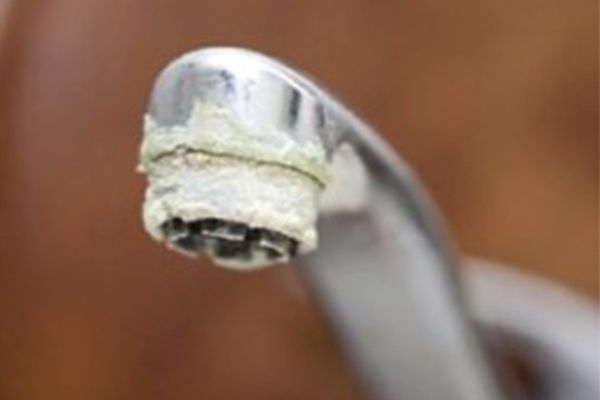
Calcium buildup on kitchen faucets is a common problem. It appears as white, chalky deposits. Over time, it can reduce water flow and damage fixtures. But what causes this issue? The main culprit is hard water. Hard water contains high levels of minerals, primarily calcium and magnesium. When water evaporates, these minerals remain behind. They form a hard, crusty residue known as limescale. Hard water is measured in grains per gallon (GPG). Anything above 7 GPG is considered hard. A water-treatment professional can test for this. The higher the hardness level, the more calcium buildup occurs. Water flows through your pipes and comes out of the faucet. As it dries, it leaves mineral deposits behind. Over time, these deposits build up, creating white spots and crusty layers. The problem worsens when: Water sits on surfaces and evaporates. Faucets are not wiped dry after use. Hot water speeds up mineral deposits. Other Factors Contributing to Buildup Besides hard water, other factors play a role in calcium buildup: Heat – Hot water evaporates faster, leaving more mineral deposits. Low Water Pressure – Slow-moving water allows minerals to settle. Aging Pipes – Older pipes may release more minerals into the water. Frequent Faucet Use – The more water flows, the more deposits accumulate. Calcium buildup isn't just an eyesore. It can also: Clog faucet aerators. Reduce water pressure. Shorten the lifespan of fixtures. How to Identify Hard Water in Your Home Signs of hard water include: White spots on dishes and glassware. Soap scum in sinks and tubs. Rough, dry skin after showering. Clothes feeling stiff after washing. If you notice these signs, your water likely contains high calcium and magnesium levels. Preventing Calcium Buildup The best way to prevent buildup is to treat hard water. Here’s how: A water softener removes calcium and magnesium. It exchanges hard minerals for sodium or potassium ions. Softened water reduces scale buildup. Install a water softener. Whole-home filters can reduce mineral levels. Point-of-use filters can help with drinking water. After using the sink, dry the faucet with a cloth. This prevents water from evaporating and leaving residue. Vinegar dissolves mineral deposits. Soak a cloth in vinegar and wrap it around the faucet. Let it sit for 30 minutes, then scrub with a brush. Weekly cleaning prevents heavy buildup. A mix of baking soda and vinegar helps break down limescale. Ignoring calcium buildup can cause major issues. Over time, it: Clogs pipes – leading to slow drainage. Damages water heaters – Hard water reduces efficiency and the overall life of the water heater. Increases appliance wear – Dishwashers and coffee makers suffer. Hard water can also increase energy bills. Appliances work harder when coated with limescale. A water softener is the most effective way to combat calcium buildup. It: Prevents scale formation. Extends the life of plumbing & fixtures. Improves soap lathering and cleaning power. Homes with water softeners see fewer issues with limescale, soap scum, and clogged fixtures. Calcium buildup on kitchen faucets happens because of hard water. As water evaporates, minerals settle on surfaces. Over time, this forms a chalky, white residue known as limescale. To prevent buildup, consider installing a water softener. Regular cleaning, drying faucets, and using vinegar solutions can also help. Hard water affects more than just faucets—it impacts appliances, pipes, and even your skin. Fixing the problem at the source ensures cleaner water, better efficiency, and longer-lasting fixtures. If you're dealing with hard water, investing in a water softener is the best solution.

Pets need clean water. Just like humans, they rely on fresh water to stay healthy. But tap water isn’t always the best choice. It can contain chlorine, heavy metals, and other contaminants. Filtered water removes these harmful substances. It’s a simple way to protect your pet’s health. Most people assume tap water is safe. However, it often contains chemicals and impurities. Chlorine and fluoride are common additives. Heavy metals like lead and mercury may also be present. These can build up in a pet’s body over time. Some areas have high levels of bacteria or nitrates. These contaminants can cause digestive issues. Filtered water removes or reduces these risks. Filtered water is free from harmful substances. It eliminates chlorine, heavy metals, and bacteria. This makes it safer for drinking. When pets drink clean water, their bodies function better. They stay hydrated and avoid toxic buildup. Hydration is key to good health. Dehydration can lead to kidney problems and other issues. Filtered water encourages proper hydration. Better Taste, More Drinking Pets prefer fresh, clean water. Chlorine can make water taste and smell bad. This may cause pets to drink less. Less water intake can lead to dehydration. Filtered water tastes better and is free from odors. When pets enjoy their water, they drink more. This supports kidney and urinary tract health. Health Benefits of Filtered Water Improved Digestion-Contaminants in tap water can upset a pet’s stomach. Filtered water is gentler on digestion. Healthier Skin and Coat-Chemicals in water can cause dry skin. Clean water promotes a shiny, soft coat. Better Kidney Function-Heavy metals and chemicals stress the kidneys. Filtered water reduces the workload on these organs. Stronger Immune System-Fewer toxins mean better overall health. A strong immune system helps pets fight illness. Fewer Allergies-Some pets are sensitive to water additives. Removing them can reduce allergic reactions. Filtered Water for Different Pets Dogs: Dogs need lots of water. They are active and sweat through their paws. Staying hydrated keeps them energetic. Filtered water supports their metabolism. It also helps with temperature regulation. Cats: Cats can be picky about water. They often prefer running water. A water filter ensures their water is fresh. Hydrated cats have fewer urinary problems. This is especially important for male cats who are prone to urinary tract infections. Small Pets: Rabbits, guinea pigs, and hamsters need clean water too. Their small bodies are sensitive to toxins. Even low contaminant levels can harm them. Filtered water keeps them safe and healthy. Birds: Birds are delicate creatures. They need pure water for hydration and bathing. Tap water chemicals can irritate their skin and feathers. Filtered water prevents these issues. R eptiles and Fish: Reptiles and fish depend on clean water. Chlorine and heavy metals can be harmful. Filtered water is the best option for their tanks and habitats. Signs Your Pet Needs Better Water Drinking less than usual Digestive issues Dry, flaky skin Dull coat Frequent urinary issues Bad breath If you notice these signs, check their water source. Switching to filtered water may help. How to Provide Filtered Water Use a Water Filter A high-quality water filter removes harmful substances. Choose one designed for home use. Invest in a Pet Fountain Running water encourages pets to drink more. Many pet fountains include built-in filters. Change Water Frequently Fresh water is best. Replace it at least once a day. Clean Bowls Regularly Bacteria can grow in water bowls. Wash them with soap and water daily. Monitor Your Pet’s Drinking Habits Watch for changes in how much they drink. Increased or decreased intake may signal a problem. Filtered water is the best choice for pets. It removes harmful chemicals and tastes better. Clean water supports hydration and overall health. Whether you have a dog, cat, bird, or small pet, filtered water benefits them all. Making the switch is a simple step toward a healthier, happier pet. Give your pets the best—provide them with clean, filtered water every day.

First impressions matter . Guests expect luxury when they check into a hotel, and water quality significantly shapes their experience. Cloudy water or odd tastes can leave a lasting negative impression and may lead to poor reviews. Water quality is often a subtle yet powerful factor in how guests perceive their stay. Bad water impacts guests directly. Chlorine smells, iron stains or hard water residues are immediately noticeable. Showering in hard water feels unpleasant, taste impacts brushing teeth & drinking. These minor inconveniences can pile up to create dissatisfaction. Guests may also find stains on linens or dull, faded laundry, which reflects poorly on the hotel's image. Bad water also damages hotel infrastructure. Hard water leads to the buildup of minerals in pipes and appliances. Over time, this clogging reduces water flow and efficiency. Water heaters are especially vulnerable, as mineral buildup can cause them to fail prematurely. The constant strain on appliances and plumbing results in higher maintenance costs and the need for frequent replacements. Ignoring water quality comes at a high cost. Poor water leads to increased energy bills as appliances work harder to compensate for inefficiencies. Maintenance costs rise as plumbing systems degrade, and guest complaints can damage the hotel's reputation. For hotels, providing subpar water is not just an operational issue but a significant business risk. Our advanced filtration systems tackle water problems at the source. By removing impurities, these systems improve both the taste and clarity of water. Guests will notice the difference, and it enhances their overall experience. For hotels with hard water issues, water-softening solutions are essential. These systems protect pipes and appliances, ensuring that they function efficiently and last longer. Regular maintenance is crucial to sustaining water quality. Our ongoing servicing and monitoring programs prevent issues before they arise, ensuring consistent water quality throughout the hotel. With proactive care, your hotel can avoid unexpected costs and maintain high standards. We also offer eco-friendly options for hotels seeking sustainable solutions. Chemical-free filtration systems are not only effective but also align with the growing demand for environmentally conscious practices. By lowering your hotel's carbon footprint, these systems contribute to a greener future. Partnering with experts makes all the difference. We understand the unique needs of hotels and provide custom solutions tailored to your property. With reliable service and long-term support, we ensure that your water quality remains excellent. Bad water in hotels is a solvable problem, and we are here to help. Deliver quality water, keep your guests happy, and enjoy lasting savings by working with us.

Did you know... There are two ways to treat your water: Chemically, with harsh soaps and detergents, or mechanically with a water treatment system. The Bad News...You are chemically with harsh soaps & detergents. It's expensive. It's tough on your clothes. It's tough on your skin. And it's tough on your home. Families spend hundreds of dollars on expensive soaps & cleaners and only a fraction of the money goes toward actual soap. The Sad Truth... You are pouring your money down the drain. Most products are full of chemical softeners and unnecessary costs. And expensive packaging adds to our growing pollution problem. Another dilemma: Everything from soap to bottled water is packaged in plastic. 50% of all plastic is used once and thrown into landfills or worse into our waterways. Enough plastic is thrown away each year to circle the earth four times. It takes 500-1000 years for plastic to biodegrade. We are drowning in plastic but there is an EASY and AFFORDABLE solution. Make A Change... By using our specially designed softeners and laundry oxidizer, you can save 100's of dollars and no longer be poring your money down the drain. You will provide a healthier home for your family and future generations to come. With our products , you will become a greener household. Reduce VOCs and other chemicals in your home. It all starts today!

Lead contamination in drinking water is a pressing concern in the United States. Certain states have higher numbers of lead service lines, increasing the risk of exposure. Illinois tops the list with approximately 1,071,355 lead pipes. Florida follows closely with about 1,014,952, and Ohio has around 809,990. Other states with significant numbers include Pennsylvania and New York. NRDC.ORG Lead enters drinking water primarily through the corrosion of plumbing pipes containing lead. This is especially prevalent in areas with older homes. The health implications can be severe. Lead exposure can cause damage to the brain, red blood cells, and kidneys. Young children and pregnant women are particularly vulnerable. EPA.GOV To mitigate lead exposure, several steps can be taken: Run the Tap: Before using water for drinking or cooking, let it run. If you have a lead service line, let the water run for 3-5 minutes. Without a lead service line, 30-60 seconds is sufficient. This helps flush out any lead that may have leached into the water. HEALTH.STATE.MN.US Use Cold Water: Always use cold water for drinking, cooking, and preparing baby formula. Hot water can dissolve lead more quickly, increasing the risk of contamination. Boiling water does not remove lead and may concentrate it further. CDC.GOV Test Your Water: The only way to know if lead has been reduced by letting it run is to check with a test. If letting the water run does not reduce lead, consider other options to reduce your exposure. HEALTH.STATE.MN.US Replace Lead Plumbing: Identify and replace lead-containing plumbing fixtures and service lines. If there is a lead service line, replace it in full, from the main to your home. Contact your municipal water system before replacing the lead service line on your property. Replace brass faucets, fittings, and valves that do not meet the current definition of “lead-free”. The current definition went into effect on January 4, 2014; therefore, any “lead-free” plumbing materials purchased and/or installed before that date should be discarded or replaced. DEP.NJ.GOV In October 2024, the Environmental Protection Agency (EPA) issued a final rule requiring the removal of all lead pipes within ten years. The regulation also lowers the action level of lead contamination to 10 parts per billion, effective in 2027. This initiative aims to eliminate lead exposure from drinking water nationwide. EN.WIKIPEDIA.ORG While these measures are crucial, public awareness and proactive action at the individual level remain essential. Regularly testing your water, staying informed about local water quality reports, and advocating for infrastructure improvements can significantly reduce lead exposure risks. In conclusion, lead contamination in drinking water is a significant issue, particularly in states with older infrastructure. By taking proactive steps, both at the individual and community levels, we can work towards safer drinking water for all.

A strange smell in your water is never a good sign. It can be unsettling, and worse, it can signal serious water quality issues. At Fix Any Water , we specialize in finding the cause of water odors and providing the right filtration solutions. Common Causes of Smelly Water Your water should be clean and odor-free. If it smells bad, something is wrong. Here are the most common causes of water odors: 1 . Rotten Egg Smell (Sulfur) Caused by hydrogen sulfide gas. Comes from natural decay, sulfur bacteria, or a problem with your water heater. Creates a strong, unpleasant smell. Can corrode plumbing and stain fixtures. 2 . Musty or Earthy Odor Often from decaying organic material in well water. Sometimes caused by bacteria, algae, or mold growth in pipes. Can make water taste as bad as it smells. 3 . Chlorine Smell Municipal water systems use chlorine to disinfect. Strong chlorine odors mean levels are too high. May create harmful byproducts in water. 4 . Sewage or Fishy Smell Could be due to decaying organic matter in water. Sometimes linked to high levels of bacteria or chemical contamination. 5 . Gasoline or Chemical Smell Rare but serious. Could mean a nearby fuel spill or industrial contamination. Needs immediate testing and filtration. How Fix Any Water Fixes Smelly Water We offer solutions based on the cause of the smell. Every home or business is different. Our experts diagnose the problem and recommend the right solution. 1 . Sulfur Removal Systems Hydrogen sulfide needs special filtration. We use carbon filters, aeration, peroxide, or oxidizing filters. Removes sulfur gas before it reaches your tap. 2 . Whole Home Water Softeners Hard water can trap smells in pipes. Softening the water reduces scale buildup. Helps remove iron and improves overall water quality. 3 . Carbon Filtration Ideal for chlorine, musty odors, and organic contaminants. Activated carbon absorbs odors. Works great for city and well water. 4 . Reverse Osmosis (RO) Systems Best for removing chemical smells. Provides pure, great-tasting water. Removes chlorine, bacteria, and even trace chemicals. 5 . UV Disinfection Eliminates bacteria that cause musty or fishy odors. Used in combination with filtration for best results. Keeps water safe for drinking and cooking. 6 . Well Water Testing & Treatment Well water can change over time. We test for bacteria, iron, sulfur, and other contaminants. Custom solutions keep well water fresh and odor-free. Why Choose Fix Any Water? We don’t just sell filters. We solve water problems. 1 . Custom Solutions Every water system is different. We test, analyze, and design a system just for you. No guesswork—just clean, fresh water. 2 . No-Chemical Filtration Options We offer natural filtration methods when possible. No need for harsh chemicals in your home. Safe for families, pets, and appliances. 3 . Expert Installation & Service We don’t just install systems—we maintain them. Regular service keeps filters working. Our team is trained in home, business, and medical-grade water systems. 4 . Reliable & Affordable We offer financing options for big projects. Maintenance plans keep systems running smoothly. We work with homeowners, restaurants, breweries, medical centers and more. Don’t Live with Smelly Water Bad-smelling water is a sign of something wrong. Please don’t ignore it. Whether it’s sulfur, chlorine, bacteria, or chemicals, Fix Any Water has a solution. Contact us today for your free water test!

